Search results
Projects
Alone Together
Understanding the experiences of older people from culturally and linguistic diverse community backgrounds during COVID-19
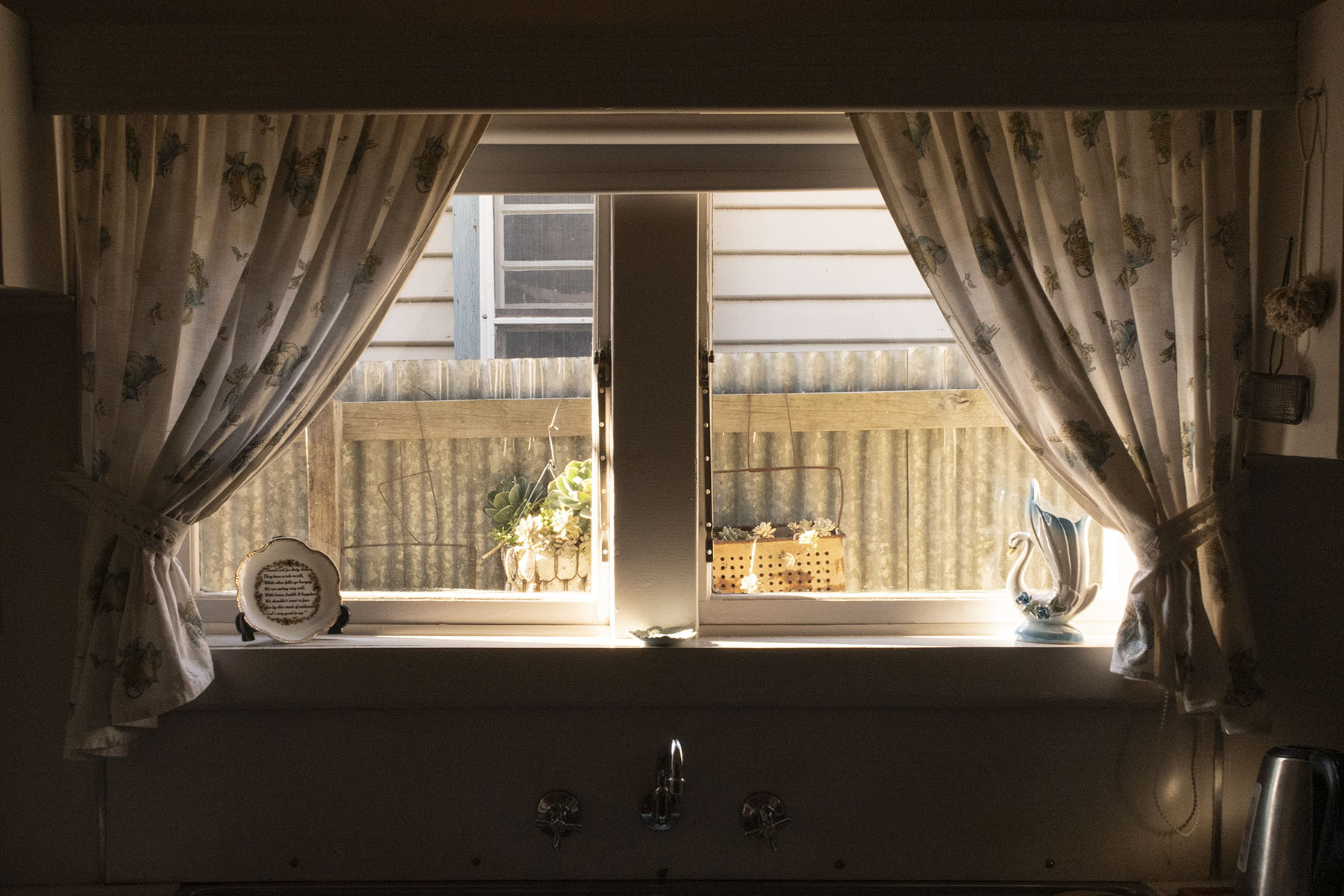
The COVID-19 pandemic has impacted everybody, but we know that its impact has been worse for older people who live independently. We also know that if you come from other countries or if English is your second language your social networks can sometimes be further away and physical distancing and lockdowns can make you feel isolated.
As part of the Alone Together project we are inviting older people from culturally and linguistic diverse communities to talk with one of our research team. We would like to know how COVID-19 has impacted your everyday life; how you are coping with these changes; and what type of services have been useful.
These conversations will help us to understand how to provide better support to older people from these communities in the future.
Research team: Dr Ruth De Souza (RMIT University); Distinguished Professor Larissa Hjorth (RMIT University); Ms Maria Dimopoulos (Special Adviser, Multicultural Communities, Department of Justice & Community Safety); Associate Professor Bianca Brijnath (NARI); Ms Deidre Ellem (Australian Digital Health Agency (ADHA) Consumer –Collaborative Pairs Program); Dr Barbara Barbosa Neves (Monash University); Ms Kate Renzenbrink (Bendigo Health and Clinical Reference Lead for the Australian Digital Health Agency (ADHA) and Collaborative Pairs Program; Dr Jenny Waycott (University of Melbourne); Dr Juan Sanin (RMIT University).
If you would like to get involved with this project, fill out the form below or reach out to project leaders via the contact info provided alongside each bio.
People
Ruth De Souza
VC Research Fellow
School: School of Art
Dr Ruth De Souza (FACN) is a Vice-Chancellor’s Fellow at RMIT, based in the School of Art and DCP Research Platform. She is a nurse, academic and a community-engaged researcher in gender, race, health and digital technologies. Ruth’s Fellowship will engage health professionals in finding new ways to understand, co-design and implement sustainable cultural safety initiatives in a range of health contexts in response to health inequities.
Prior to moving to Australia in 2013, Ruth worked at AUT University where she taught in the School of Nursing, led the Bachelor of Health Promotion, and was a Senior Research Fellow at the Centre for Asian and Migrant Health Research. Since her arrival in Australia, Ruth has undertaken a wide range of roles, including leading an undergraduate nursing program at Monash University’s Berwick campus; spearheading a unique community-engaged joint research appointment with North Richmond Community Health exploring how wearables and other digital technologies are perceived by people from culturally and linguistically different backgrounds and co-ordinating an interdisciplinary Data Systems and Society Research Network across the University of Melbourne. Ruth has also investigated the applicability of cultural safety in Australia, working closely with The Congress of Aboriginal and Torres Strait Islander Nurses and Midwives (CATSINaM), presenting at their National Professional Development Conferences and delivering training on cultural safety. She has also undertaken a two-year cultural safety project with cohealth (a not-for-profit community health organisation) and Our Watch who work for the primary prevention of violence against women and their children.
Gamified Research Translation (GREAT)
Where business research meets gamification to create impact
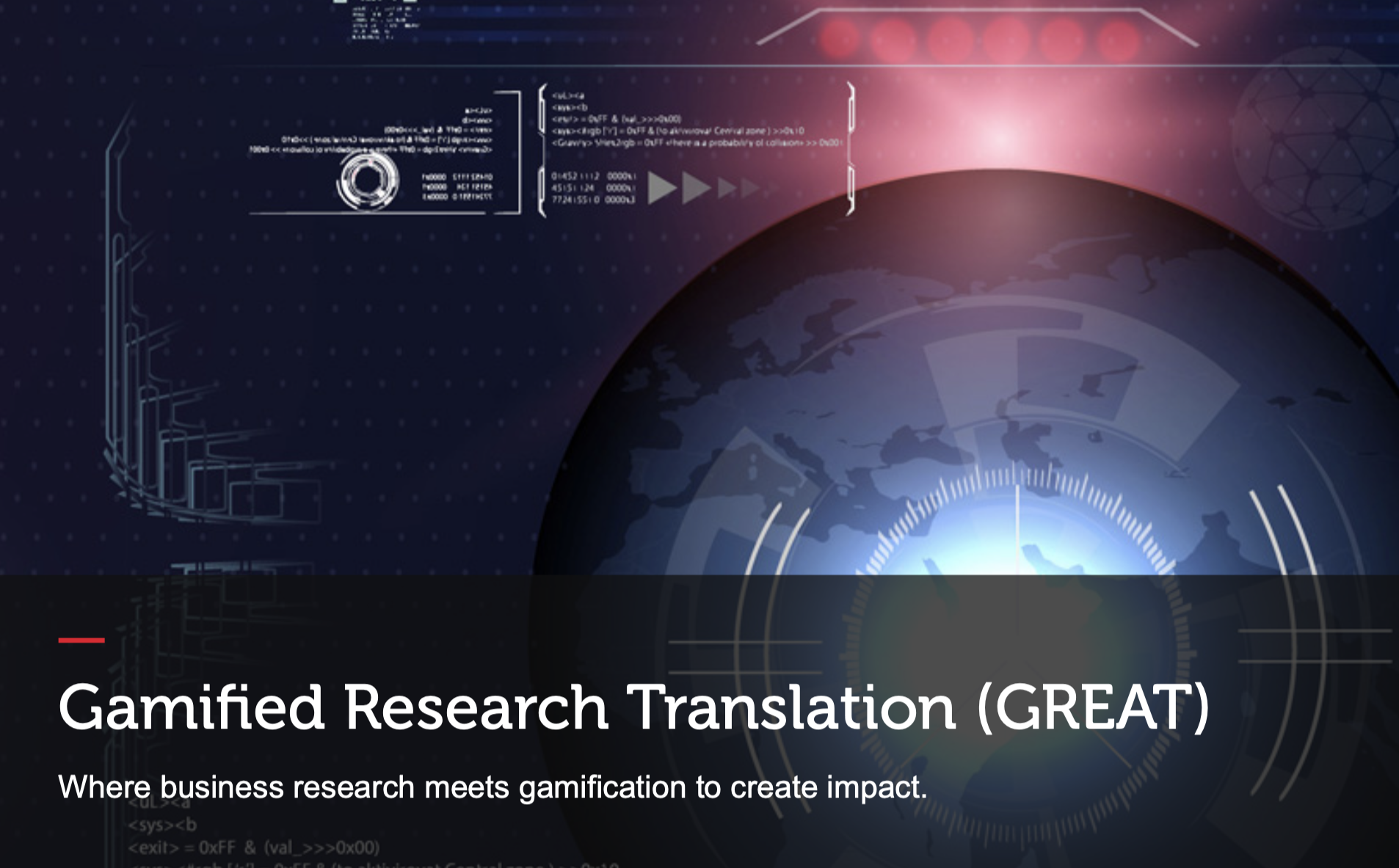
The GREAT challenge
During the last decade, games have become a common part of people’s daily lives. Digital promise of Ed Tech and growing research on gamification has drawn attention to translation of valid science-based research for capability development. Activities and outputs that are not traditionally perceived as game-like are increasingly gamified.
In its most basic form, business research translation with gamification involves multi-disciplinary tasks of taking research findings, human psychology and technology of game-design, and applying them to business contexts — to achieve impact through change in behavior, cognition or emotional states.
However, current business research translation activities tend to rely on traditional academic outputs which may not deliver the intended societal impact — a challenge highlighted at local and international level.
The GREAT mission
Increase awareness and knowledge on gamification of business research. To encourage researcher-industry integration to solve business challenges through games. To foster and deploy a cross-disciplinary network of GREAT experts, specialists and enthusiasts
The GREAT cause
GREAT serves as a catalyst and anchor for capability development and a forum for faculty, specialists and practitioners to develop coherent and collective thought leadership on how might we develop and implement game-based tools and gamification as the means of research translation to achieve societal impact.
The GREAT purpose
The purpose of GREAT is to catalyse meaningful inter-disciplinary knowledge exchange, develop best practices in gamification of business research and increase research-practice integration.
The GREAT call
We have embarked on a meaningful journey of shaping our collective future through gamification of business research.
We cannot do this alone – we need you – your expertise, your experience and your passion for the human side of business.
Find out more about Gamified Research Translation [GREAT] here.
If you would like to get involved with this project, fill out the form below or reach out to project leaders via the contact info provided alongside each bio.
People
Hardik Bhimani
PhD candidate
School: Economics, Finance and Marketing
Hardik Bhimani is a PhD student in the School of Economics, Finance and Marketing and is concurrently completing a Graduate Diploma in Psychology at Monash University. Hardik holds a Masters in Applied Finance from Kaplan Business School (Sydney) and is a member of the prestigious Strategic Management Society.
“Managers face many strategic decisions but they often make unsustainable choices. So the challenge for todays’ firms is – how to effectively make social, environmental and economic choices?”
Prior to joining RMIT, where Hardik currently teaches Strategic Management courses, he was an award winning strategist and subject matter expert at several multinational organisations. It was during this period that he cultivated a curiosity for behavioural strategy. Ultimately, the quest to advance his research found him a ‘home’ at RMIT University’s Behavioural Business Lab.
“The access to supportive supervisors and a team of like-minded critical thinkers means the research journey is not only pleasant, but also engaging.”
Hardik’s research aims to understand the micro foundations of the interplay between social, environmental and economic strategic choices. His mixed-method research takes a behavioural strategy perspective and explains psychological influences, which affect strategic decision-making. In turn, the findings could guide managers’ to effectively de-bias their decision-making process, for a more sustainable strategic choice.
Care Futures Beyond Data
Co-creative explorations into new and emerging care services and technologies in Japan.
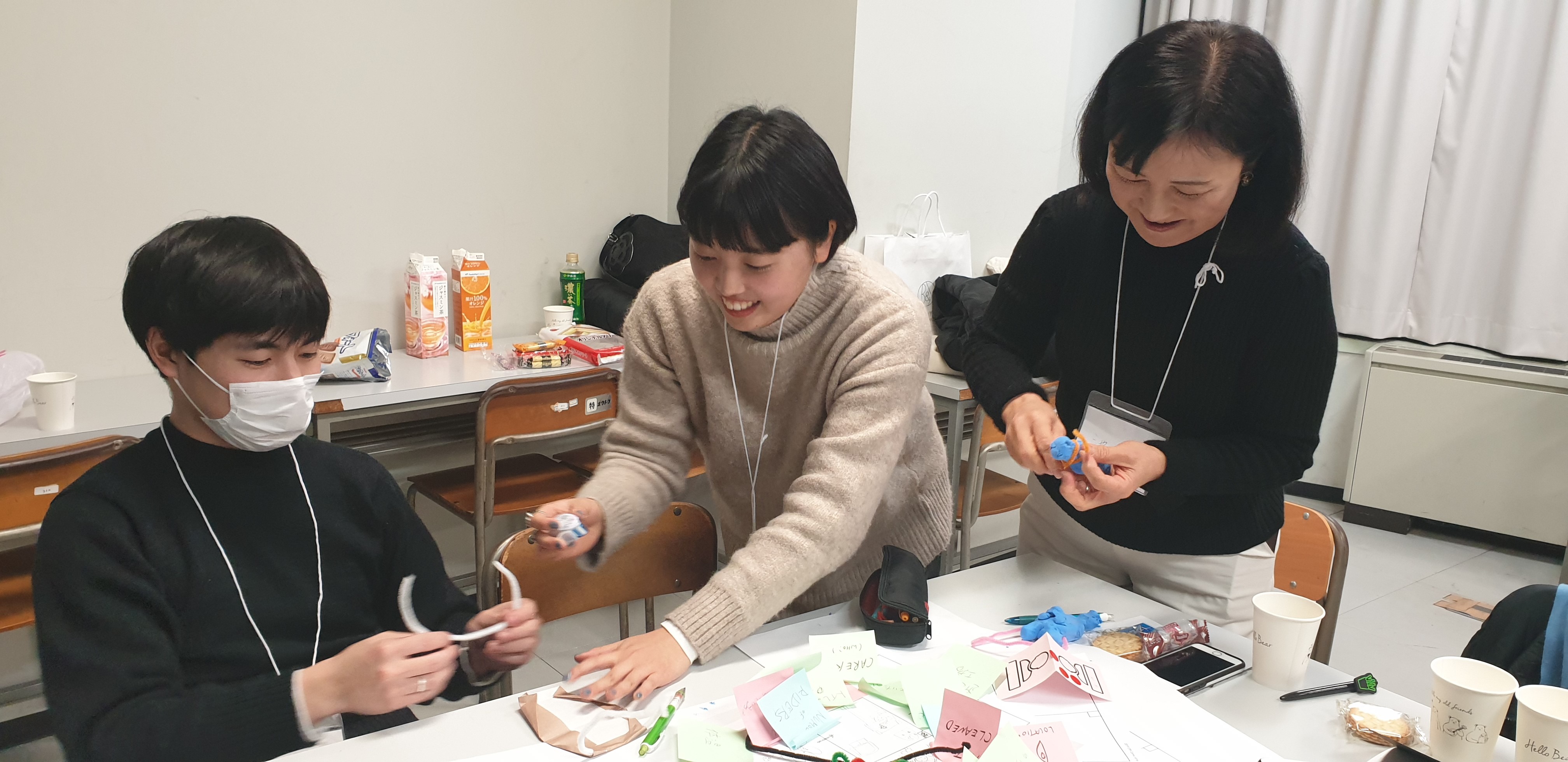
This project investigates the perceptions, practices, and aspirations around emerging care systems, especially those using electronic health records and big data, among the members of public and professionals in related fields in Japan. The project employs creative methods to generate nuanced insights into current dynamics and engage different stakeholders to imagine future cyberphysical systems of care that are meaningful to local contexts.
This project questions how we might understand and design cyberphysical systems for health care in Japan particularly in the context of the introduction of the Next Generation Medical Infrastructure law, making available medical big data to be used anonymously for research purposes across sectors.
This transdisciplinary and co-creative project aims to:
1) Investigate how healthcare technologies are understood and experienced, and how its impacts are imagined by members of the public and professionals, including perceived benefits and concerns
2) Co-create different futures of cyberphysical systems for care
3) Engage and raise awareness of such systems and their impacts among different stakeholders.
To achieve this, it employs ethnographic and participatory methods involving different members of public and healthcare professionals in Tokyo and Kyoto.
Find out more about the Care-Full Design Lab
If you would like to get involved with this project, fill out the form below or reach out to project leaders via the contact info provided alongside each bio.
People
Jaz Hee-jeong Choi
Vice-Chancellor’s Senior Research Fellow
School: Design and Social Context
Dr Jaz Hee-jeong Choi is a Vice-Chancellor’s Senior Research Fellow at the Digital Ethnography Research Centre at RMIT. Previously, she was a Founding Member and the Director of the QUT Urban Informatics Research Lab, a transdisciplinary research group exploring and designing at the intersection of people, places, and technologies. She also founded the SIGCHI FoodCHI Network.
She is an advocate for transdisciplinary research, carefully balancing creativity and criticality. Her approach to urban sustainability recognises ‘play’ as the core of transformative interactions in cities as complex techno-social networks. She builds on this to explore how various forms of digital and playful experiences are designed and evolve in different cultural contexts. Her current research explores designing with and for care for liveable and equitable urban futures across three inter-related domains: wellbeing and ageing; impactful research methods, and; co-creative urban transformation.
She has collaborated with leading international researchers, published in books and journals across various disciplines, and given invited talks at major international conferences including the inaugural Global Social Economy Forum in 2013 and the opening keynote at the 2010 UNESCO Creative Cities Conference.
#Failurists
Creative Interdisciplinary Methods
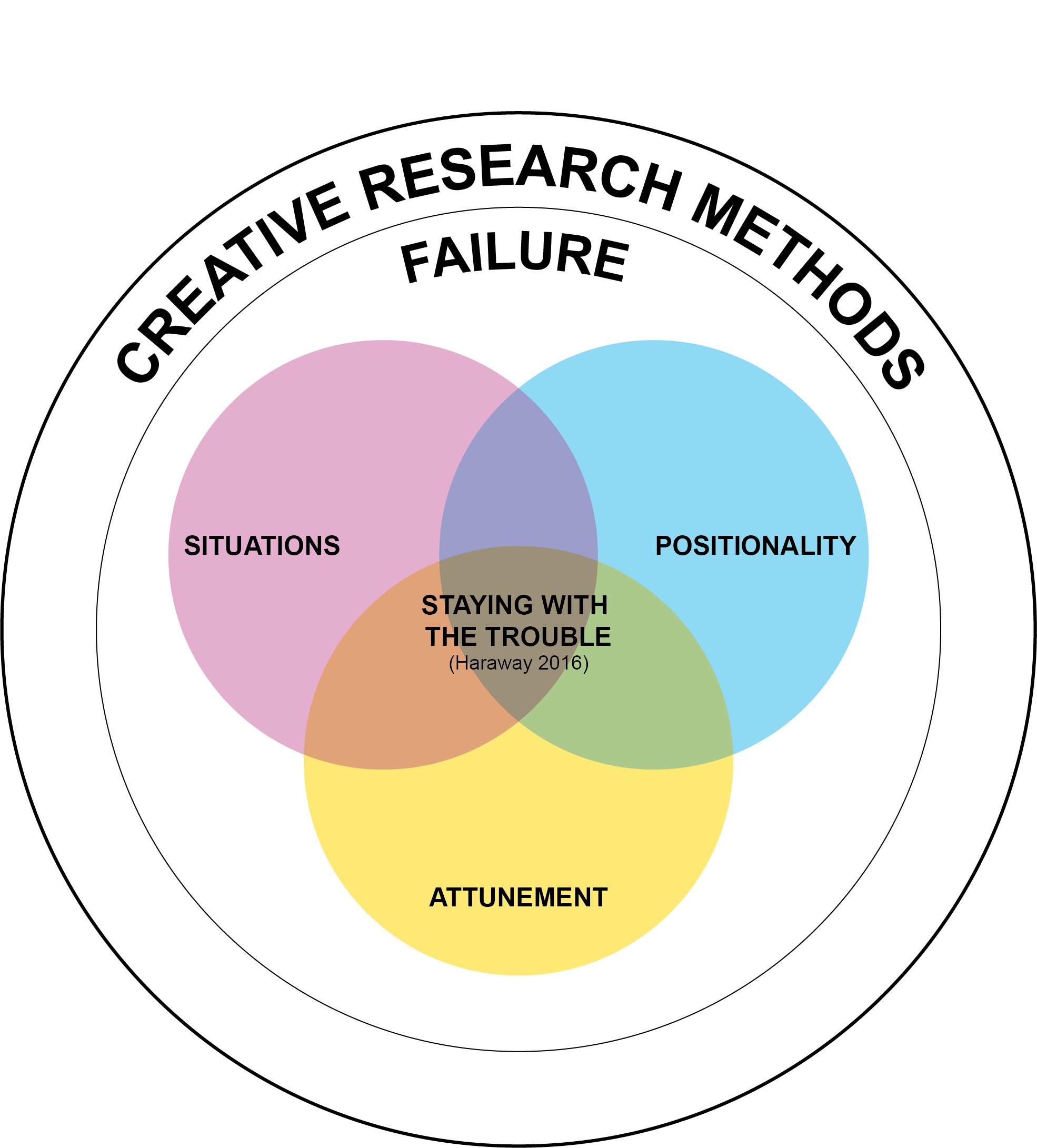
Interests in creative, impactful research methods are growing; best practices of such methods are often discussed both in and out of academic research. The #FAILURISTS Collective initiates interdisciplinary explorations around one of the least talked about subject this in space: Failure.
We explore various tropes around failure – failure not just as a creative opportunity for re-calibrating methods, research questions and external expectations, but also as a way of knowing the world, and; most importantly, failure as a vehicle for critiquing larger issues around the challenges of the academic and political landscape.
If you would like to get involved with this project, fill out the form below or reach out to project leaders via the contact info provided alongside each bio.
People
Larissa Hjorth
Distinguished Professor and Director, Design and Creative Practice
School: Enabling Capability Platforms
Larissa Hjorth is a digital ethnographer, artist, Distinguished Professor and director of the Design & Creative Practice ECP platform at RMIT University. With Professor Heather Horst, she co-founded the Digital Ethnography Research Centre (DERC). Previously, Hjorth was Deputy Dean, Research & Innovation, in the School of Media & Communication (2013−2016). Hjorth served on the inaugural Australian Research Council (ARC) Engagement & Impact Pilot study assessment panel for humanities and creative practice.
Hjorth studies the socio-cultural dimensions of mobile media and play practices in the Asia-Pacific region with an emphasis on interdisciplinary, collaborative and cross-cultural approaches. She has published a dozen co-authored books, edited over a dozen Handbooks/Companions and has over 40 journal articles.
More recently, Hjorth’s work has become concerned with how we can bring creative, social and design solutions to the growing ageing populations and, in turn, how we might consider scenarios of what it means to die well. She is also studying how our “more-than-human” companions can teach us about new media in everyday life. Hjorth’s last book, Haunting Hands (Oxford Uni Press) looked at how mobile media is being deployed in situations of grief and trauma, her previous book explored how art practice can teach us new acumen into the climate change debate.
Hjorth’s books include Haunting Hands (with Cumiskey 2017), Screen Ecologies (with Pink, Sharp & Williams 2016), Digital Ethnography (Pink et al. 2016) Mobile Media in the Asia-Pacific (2009), Games & Gaming (2010), Online@AsiaPacific (with Arnold 2013), Understanding Social Media (with Hinton 2013), and Gaming in Locative, Social and Mobile Media (with Richardson 2014).
Jaz Hee-jeong Choi
Vice-Chancellor’s Senior Research Fellow
School: Design and Social Context
Dr Jaz Hee-jeong Choi is a Vice-Chancellor’s Senior Research Fellow at the Digital Ethnography Research Centre at RMIT. Previously, she was a Founding Member and the Director of the QUT Urban Informatics Research Lab, a transdisciplinary research group exploring and designing at the intersection of people, places, and technologies. She also founded the SIGCHI FoodCHI Network.
She is an advocate for transdisciplinary research, carefully balancing creativity and criticality. Her approach to urban sustainability recognises ‘play’ as the core of transformative interactions in cities as complex techno-social networks. She builds on this to explore how various forms of digital and playful experiences are designed and evolve in different cultural contexts. Her current research explores designing with and for care for liveable and equitable urban futures across three inter-related domains: wellbeing and ageing; impactful research methods, and; co-creative urban transformation.
She has collaborated with leading international researchers, published in books and journals across various disciplines, and given invited talks at major international conferences including the inaugural Global Social Economy Forum in 2013 and the opening keynote at the 2010 UNESCO Creative Cities Conference.
Cultural Impact Workshop Series
Measuring the Real-World Benefits of Creative Practice Research
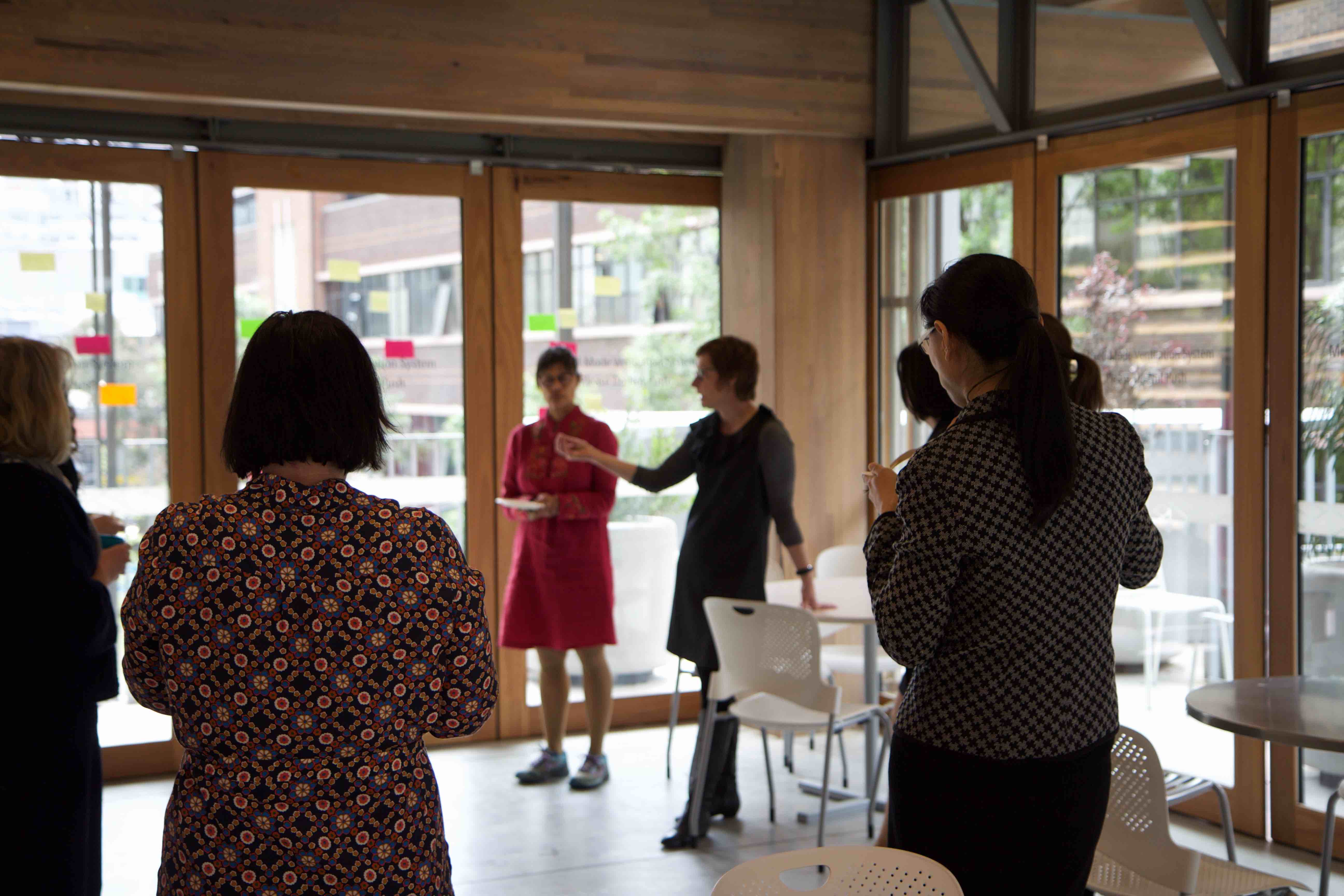
In this series of hands-on workshops, leaders in the field demonstrated how to engage and translate practice and research into real-world benefits. Presented by RMIT’s non/fictionLab, Screen & Sound Cultures, School of Design and RMIT Culture, the project focused on the specific challenges faced by creative practice disciplines such as visual art, design, advertising, creative writing and screen and involved both creative practice researchers and industry creatives.
If you would like to get involved with this project, fill out the form below or reach out to project leaders via the contact info provided alongside each bio.
People
Michelle Aung Thin
School: Media and Communication
Michelle Aung Thin is a writer, former advertising copywriter and scholar. She is a Lecturer at RMIT University and teaches across the disciplines of Creative Writing and Advertising. Her most recent novel, Hasina (Allen & Unwin 2019) is about Rohingya ethnic cleansing and is published as Crossing the River Farak (Annick 2020) in Canada and the USA. Her first novel, The Monsoon Bride, (Text 2011) is set in colonial Burma and was shortlisted for the Victorian Premier’s Literary awards as an unpublished manuscript. Her writing has been included on VCE reading lists and republished on the SBS website. In 2017, she was a National Library of Australia Creative Arts Fellow (supported by the Eva Kollsman and Ray Mathew Trust) and in 2014, the first Asialink writer in residence to Myanmar (funded by Arts Victoria).
Michelle was a co-director of the non/fictionLab in 2018 and 2019, is currently a co-director of WrICE, Writers Immersion and Cultural Exchange and has served on the board of The Lifted Brow. Her research interests range from the cultural history of southeast Asian hybrid identities to contemporary creative practices in Myanmar and the ethics of writing about difference. Current research includes a project addressing diversity in publishing and a pilot study that aims to reduce sexist advertising by educating the next generation of advertising creatives about harmful stereotypes.
The Spatial Capability Cluster at RMIT (SCCAR)
Phase 2
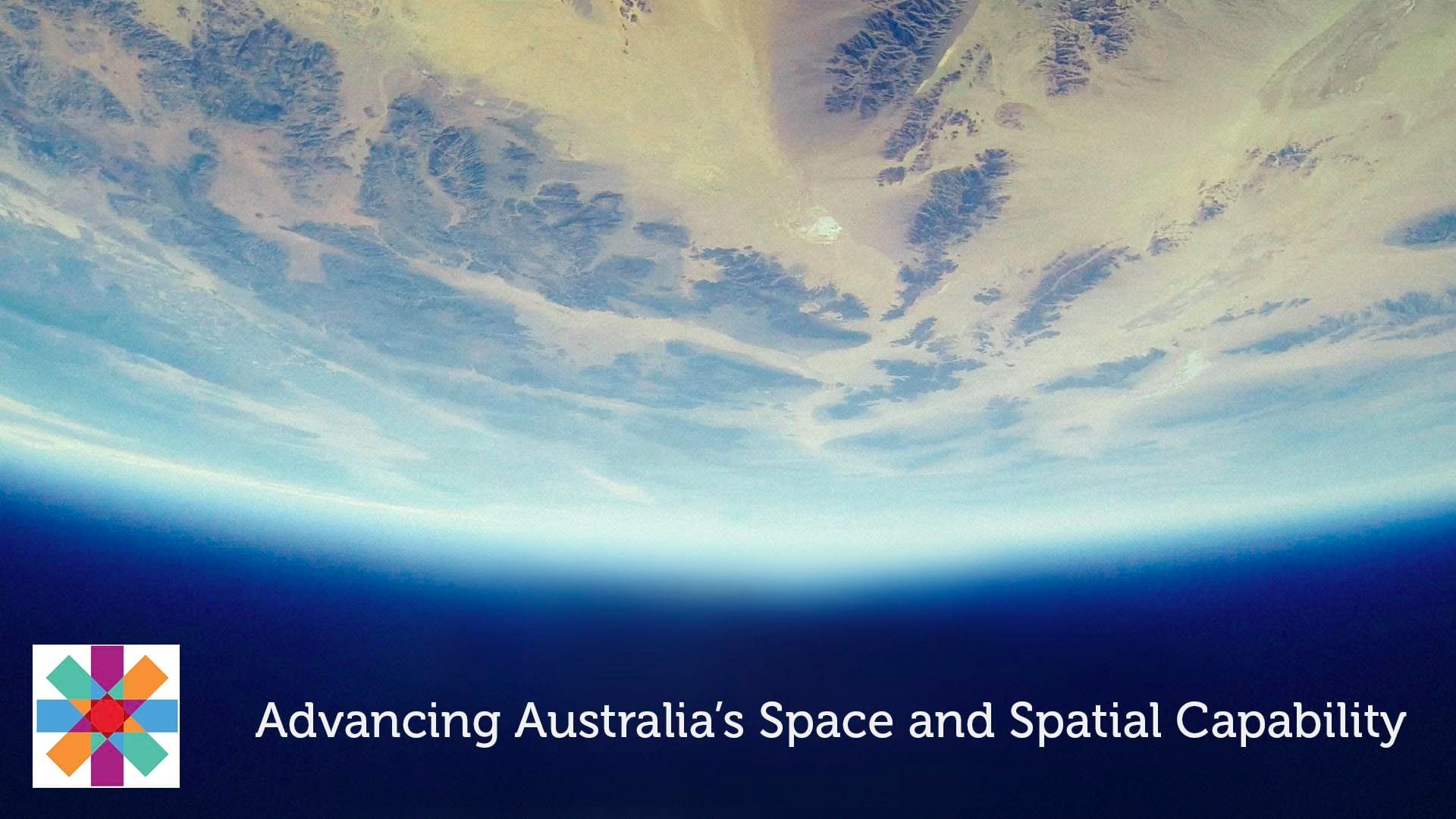
The SASCCAR project is working to establish a “Space and Spatial Capability Cluster” at RMIT. The cluster aims to provide a sustainable and interdisciplinary community of practice in “space” and “spatial”, bringing together spatial experts across RMIT University, and supporting early-career researchers and HDR students working in the spatial sciences. The cluster aims to enhance collaboration, increase the visibility of RMIT’s world-class expertise in spatial knowledge, and ultimately support relevant applications to large interdisciplinary funding schemes, including CRCs and Centres of Excellence.
Phase 2 of the SASCCAR project saw skills development workshops on mapping with Tableau; Frontier SI workshop; Workshop with Mark McMillan on Indigenous Knowledge of Place; Joint workshop with the Sir Lawrence Wackett Centre and defence industry (Textron) on major Next Gen Technology Fund application; as well as a presentation at the 2019 Engaging For Impact Event on Advancing Space and Spatial Capabilities with Dr Amanda Caples.
Space is a USD$345 billion global industry which has doubled over the previous decade, with strong growth expected to continue in the medium term. Australia’s Space and Spatial industries are undergoing a rapid change and growth including everything from rockets, satellites and sensors, through to the specialists who derive insights from space based information such as location data and satellite imagery. These diverse technologies are having more impact than ever across Australia’s economy, particularly our Agricultural, mining, environmental, health, transport, defence, and built environment industries.
You can find out more about the SASCCAR project here.
If you would like to get involved with this project, fill out the form below or reach out to project leaders via the contact info provided alongside each bio.
People
Matt Duckham
Professor
School: Geospatial Science
Matt Duckham is a Professor of Geospatial Sciences at RMIT University. At RMIT, he has occupied a number of senior leadership roles including: Acting Dean STEMM Diversity and Inclusion, Associate Dean of Geospatial Science, and Deputy Head of the School of Mathematical and Geospatial Sciences, Science Director for the CRC for Spatial Information (CRCSI) Rapid Spatial Analytics Program. Prior to joining RMIT, Matt was Professor in Geographic Information Science within the department of Infrastructure Engineering at the University of Melbourne, when he also held a visiting Professor position and the University of Greenwich.
Matts research focuses on the area of Geographic Information Science, particularly distributed and robust computation and visualisation with uncertain spatial and spatiotemporal information, within the domain of mobile, location aware and sensor enabled systems. He has taught a range of undergraduate and postgraduate courses in connection with spatial computing, in particular, spatial visualisation and spatial databases.
Aesthetics, Politics and Histories: The Social Context of Art
AAANZ Conference 2018
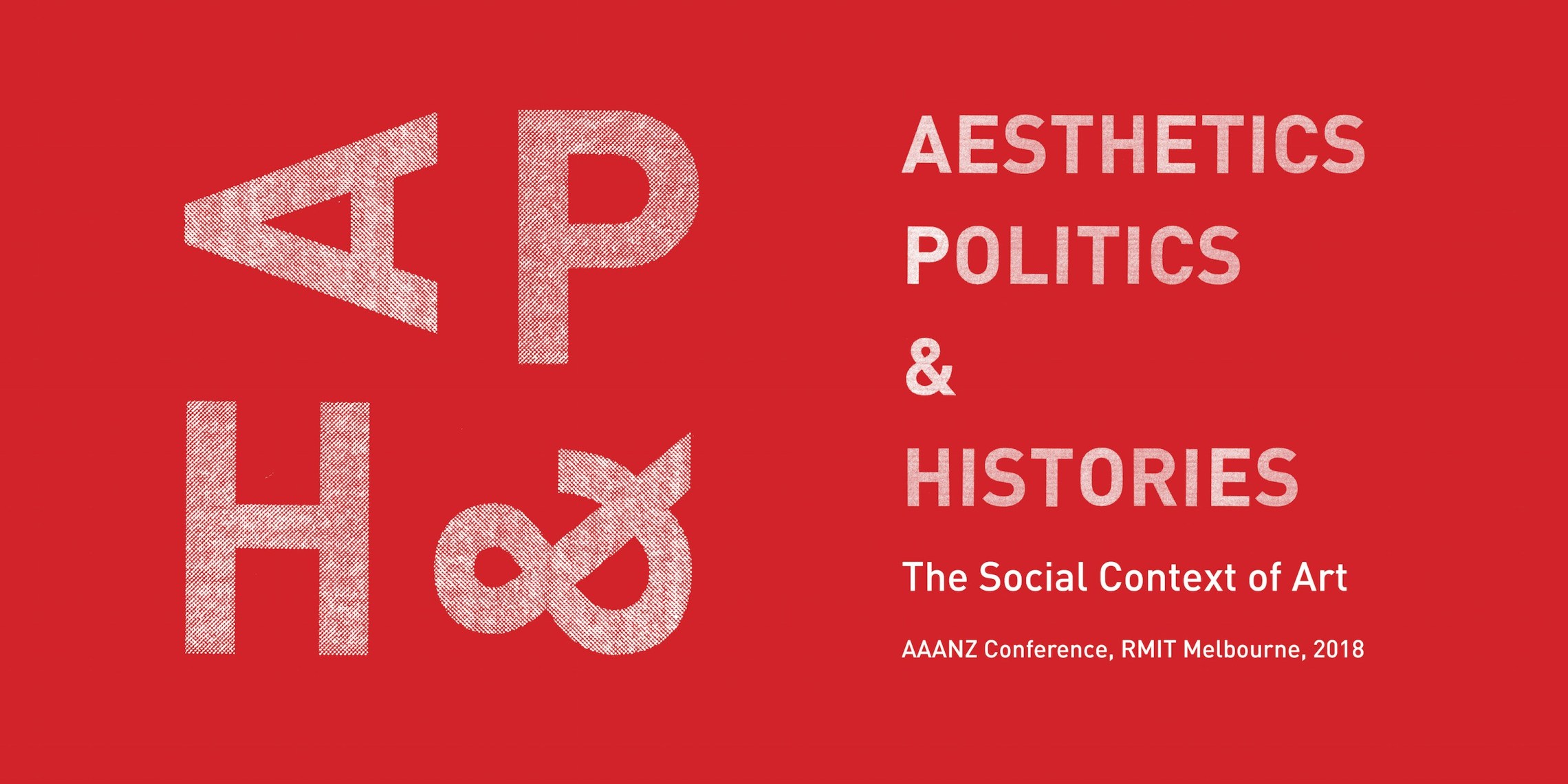
The 2018 AAANZ conference opens critical dialogue on the histories of art by examining the social contexts of aesthetics and politics. Bringing together art historians, theorists, curators, critics, and artists from across the region, the conference offers a stimulating four-day program of panels and papers, publication prizes, masterclasses and encounters with Melbourne’s vibrant arts sector with a parallel artistic program to be announced in coming months.
The conference features distinguished keynote speakers who will present expanded and alternative frameworks for understanding the diverse contexts and histories of art. Gabi Ngcobo (South Africa), curator of the 10th Berlin Biennale; Genevieve Grieves (AUS), Head of the First Peoples Department at Museums Victoria; and Ema Tavola (Fiji), independent curator are each engaged in critical curatorial practices aimed at democratising and decolonising art institutions and opening up art collections to alternative perspectives and narratives traditionally overlooked by museums and galleries. Art historian Professor Griselda Pollock (UK) from Leeds University is renowned for her postcolonial, queer feminist analysis of the visual arts, visual culture and cultural theory and research of trauma and the aesthetic in contemporary art. Curator and Associate Professor David Teh specialises in contemporary art in Southeast Asia.
The intersection of art and society is where differing worldviews and opposing epistemologies can meet and clash. Art offers a site for modelling political alternatives, questioning dominant discourses, and producing new historical narratives. Responding to the political, economic and environmental tensions of the present moment, the conference explores the relationship of the arts to social life throughout history. Located in a region marked by multiple and overlapping colonial and postcolonial histories and contemporary processes of globalisation, the conference aims to initiate critical dialogues that foreground the complex contexts, diverse practices, multiple histories, and contested trajectories of art.
KEYNOTE SPEAKERS
Genevieve Grieves is Worimi – traditionally from mid north coast New South Wales – and has lived on Kulin country in Melbourne for many years. She is an educator, curator, filmmaker, artist and oral historian who has accumulated nearly twenty years’ experience in the arts and culture industries. Some of her projects include the documentary, Lani’s Story; the video installation, Picturing the Old People; and, she was the Lead Curator of the internationally award-winning First Peoples exhibition at the Melbourne Museum. Genevieve has a role as a public intellectual and speaker and is undertaking her PhD in arts, memorialisation and frontier violence. She is Head of the First Peoples Department at Museums Victoria.
Gabi Ngcobo is the curator of the 10th Berlin Biennale. Since the early 2000s Ngcobo has been engaged in collaborative artistic, curatorial, and educational projects in South Africa and on an international scope. She is a founding member of the Johannesburg based collaborative platforms NGO – Nothing Gets Organised and Center for Historical Reenactments (CHR, 2010 – 14). NGO focusses on processes of self-organization that take place outside of predetermined structures, definitions, contexts, or forms. CHR responded to the demands of the moment through an exploration of how historical legacies impact and resonate within contemporary art.
Recently Ngcobo co-curated the 32nd Bienal de São Paulo, which took place in 2016 at the Ciccillo Matarazzo Pavilion in São Paulo, and A Labour of Love at Weltkulturen Museum, Frankfurt am Main in 2015⁄16) and travelled to the Johannesburg Art Gallery in 2017. She has been teaching at the Wits School of Arts, University of Witswatersrand, ZA, since 2011. Her writings have been published in various catalogues, books, and journals. She currently lives and works between Johannesburg and Berlin.
You can find out more about the event here.
If you would like to get involved with this project, fill out the form below or reach out to project leaders via the contact info provided alongside each bio.
People
Marnie Badham
Senior Research Fellow/ Senior Lecturer
School: School of Art
With a twenty-five-year history of art and social justice practice Australia and Canada, Marnie’s research sits at the intersection of socially engaged art, community-based research methodologies and the politics of cultural measurement. Marnie is currently focused on a series of creative cartographies registering emotion in public space; expanded curation projects on the aesthetics and politics of food; and a book project The Social Life of Artist Residencies: connecting with people and place not your own. Marnie is Senior Research Fellow at the School of Art following the prestigious award of Vice Chancellor’s Postdoctoral Research Fellow at RMIT University. Marnie co-leads the Cultural Value Impact Network and is acting Leader for CAST Contemporary Art and Social Transformation research group.
Daniel Palmer
Associate Dean
School: School of Art
Daniel Palmer is Associate Dean of Research and Innovation in the School of Art at RMIT University.
Daniel Palmer’s research and professional practice focuses on contemporary art and cultural theory, with a particular emphasis on photography and digital media. Prior to joining RMIT in 2018, Palmer was Associate Dean of Graduate Research and Associate Professor in the Art History & Theory Program at Monash Art, Design & Architecture. He also has a long association with the Centre for Contemporary Photography in Melbourne, first as a curator and later on the board of management.
Palmer’s book publications include Photography and Collaboration: From Conceptual Art to Crowdsourcing (Bloomsbury 2017); Digital Light (Open Humanities Press, 2015), edited with Sean Cubitt and Nathaniel Tkacz; The Culture of Photography in Public Space (Intellect 2015), edited with Anne Marsh and Melissa Miles; Twelve Australian Photo Artists (Piper Press, 2009), co-authored with Blair French; and Photogenic (Centre for Contemporary Photography, 2005). His scholarly writings on photography and contemporary art have appeared in journals such as Photographies, Philosophy of Photography, Angelaki, Reading Room and the Australian and New Zealand Journal of Art. Palmer has also published over sixty catalogue essays and fifty art reviews since 1997, in art magazines including Art and Australia, Photofile and Frieze.
Palmer has been the recipient of various awards and grants, and has been Chief Investigator on multiple ARC projects, including the ARC Discovery Project ‘Genealogies of Digital Light’ (2008 – 11) with Sean Cubitt and Les Walkling; an ARC Linkage Project ‘Photography as a Crime’ (2009 – 2012) with Anne Marsh, Melissa Miles, Mark Davison and the Centre for Contemporary Photography; and the ARC Discovery Project ‘Curating Photography in the Age of Photosharing’; (2015 – 2017) with Martyn Jolly. Palmer is currently a researcher on the ARC Discovery Project ‘Digital Photography: Mediation, Memory and Visual Communication’ (2020 – 2022) with Scott McQuire, Nikos Papastergiadis, Sean Cubitt and Celia Lury.
Being Wiradjuri Together
Co-designing self determination
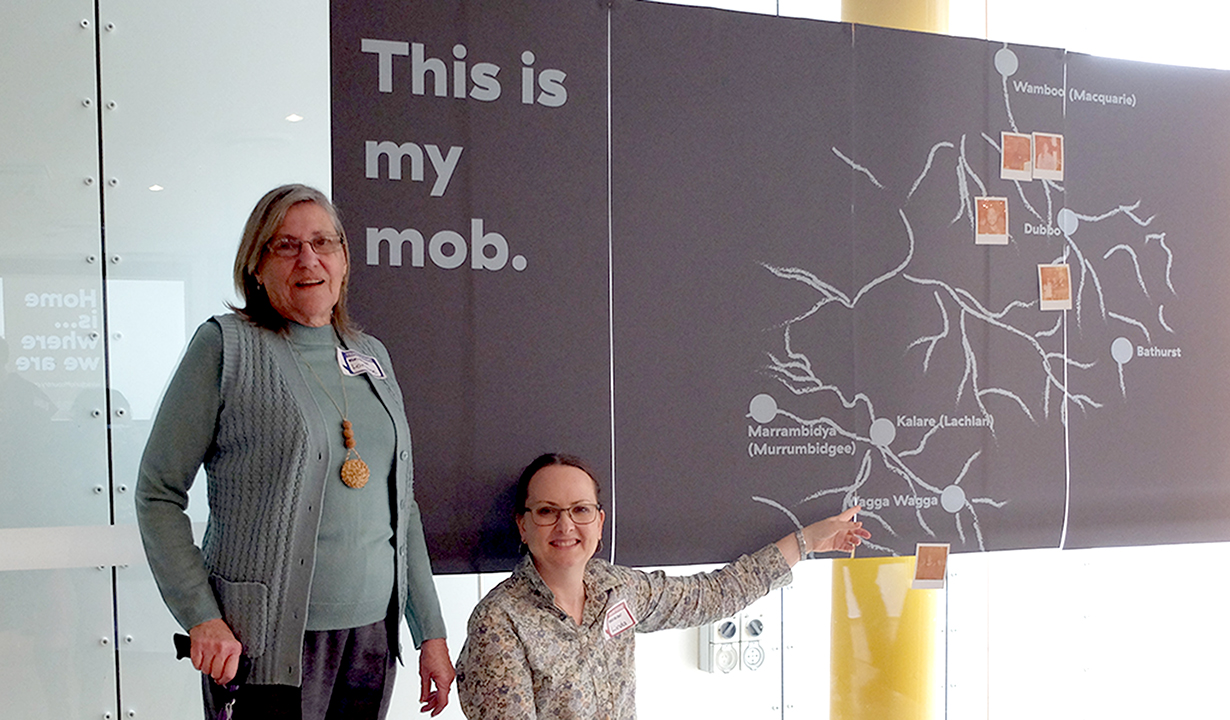
What does it mean to be non-Indigenous and design with, and in response to, Indigenous peoples and knowledge? How can design be of substantial, long-lasting benefit to Indigenous people?
Being Wiradjuri Together is about Wiradjuri people who are self-determining — renewing cultural practices and expressing what it means to be Wiradjuri. This is catalyzed through co-designing with Wiradjuri to create various mechanisms — print, video, social media, digital platform and community events — to connect, share and be Wiradjuri together.
If you would like to get involved with this project, fill out the form below or reach out to project leaders via the contact info provided alongside each bio.
People
Peter West
Lecturer, Communication Design
School: Media and Communication
Peter West is a Communication Design lecturer and PhD candidate. He has a diverse teaching practice which moves across areas such as communications strategy, art direction and design for social change. He draws upon practical industry experience as both a freelance art director and copy writer within both multinational communications agencies and health related communications strategies within the not for profit sector.
His research focuses on ways in which Non-Indigenous creative practitioners can better understand their subject position in relation to Indigenous sovereignty. West is as a chief investigator on Sovereign Weaving Project: ‘Practicing Sovereign Relations through Weaving a Treaty’. The project seeks to support Indigenous Nations to practice their sovereignty, through the realisation of a woven treaty as the conclusion of their diplomatic responsibilities.
Connecting Insights around Care-at-a-distance
Concept-generation workshop with Telstra
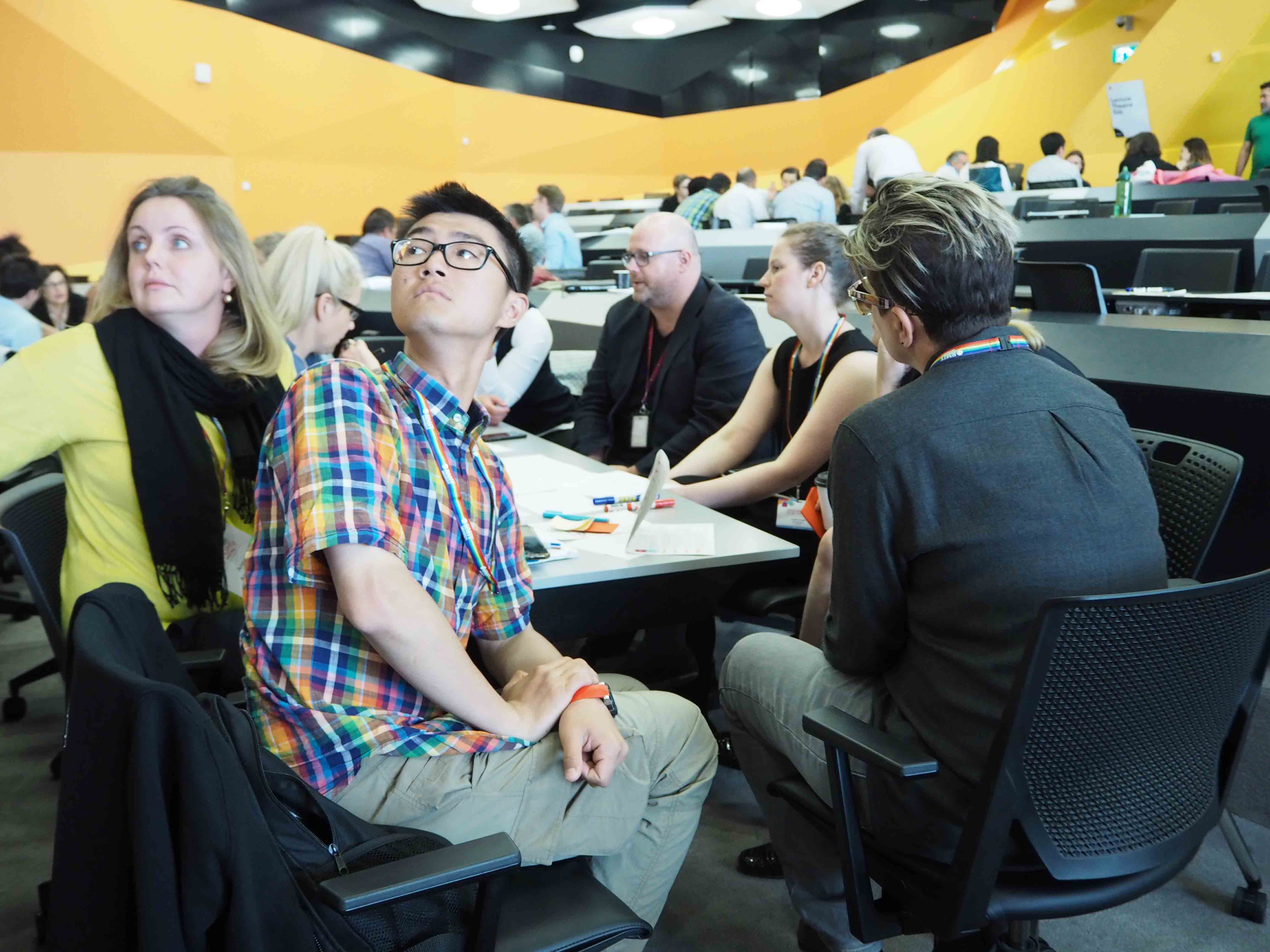
As part of the inaugural Engaging for Impact conference, the DCP ECP and Telstra ran a concept-generation workshop which brought together expertise around the creative, social, cultural, educational and ethnographic dimensions of technology and care to provide greater insights into practices now and in the future. The workshop considered some of the challenges and opportunities in the emergent fields of locative media, intergenerational care-at-a-distance, friendly surveillance and assisted living. Much of the discussion encircled key paradoxes around the following concepts:
- vulnerable agency (elderly, young children, animals);
- security and surveillance;
- privacy vs findability; and
- datafication.
If you would like to get involved with this project, fill out the form below or reach out to project leaders via the contact info provided alongside each bio.
People
Larissa Hjorth
Distinguished Professor and Director, Design and Creative Practice
School: Enabling Capability Platforms
Larissa Hjorth is a digital ethnographer, artist, Distinguished Professor and director of the Design & Creative Practice ECP platform at RMIT University. With Professor Heather Horst, she co-founded the Digital Ethnography Research Centre (DERC). Previously, Hjorth was Deputy Dean, Research & Innovation, in the School of Media & Communication (2013−2016). Hjorth served on the inaugural Australian Research Council (ARC) Engagement & Impact Pilot study assessment panel for humanities and creative practice.
Hjorth studies the socio-cultural dimensions of mobile media and play practices in the Asia-Pacific region with an emphasis on interdisciplinary, collaborative and cross-cultural approaches. She has published a dozen co-authored books, edited over a dozen Handbooks/Companions and has over 40 journal articles.
More recently, Hjorth’s work has become concerned with how we can bring creative, social and design solutions to the growing ageing populations and, in turn, how we might consider scenarios of what it means to die well. She is also studying how our “more-than-human” companions can teach us about new media in everyday life. Hjorth’s last book, Haunting Hands (Oxford Uni Press) looked at how mobile media is being deployed in situations of grief and trauma, her previous book explored how art practice can teach us new acumen into the climate change debate.
Hjorth’s books include Haunting Hands (with Cumiskey 2017), Screen Ecologies (with Pink, Sharp & Williams 2016), Digital Ethnography (Pink et al. 2016) Mobile Media in the Asia-Pacific (2009), Games & Gaming (2010), Online@AsiaPacific (with Arnold 2013), Understanding Social Media (with Hinton 2013), and Gaming in Locative, Social and Mobile Media (with Richardson 2014).
Cold Climate Landscapes and Atmospheres
Examining the effects of global warming on cold climate ecologies
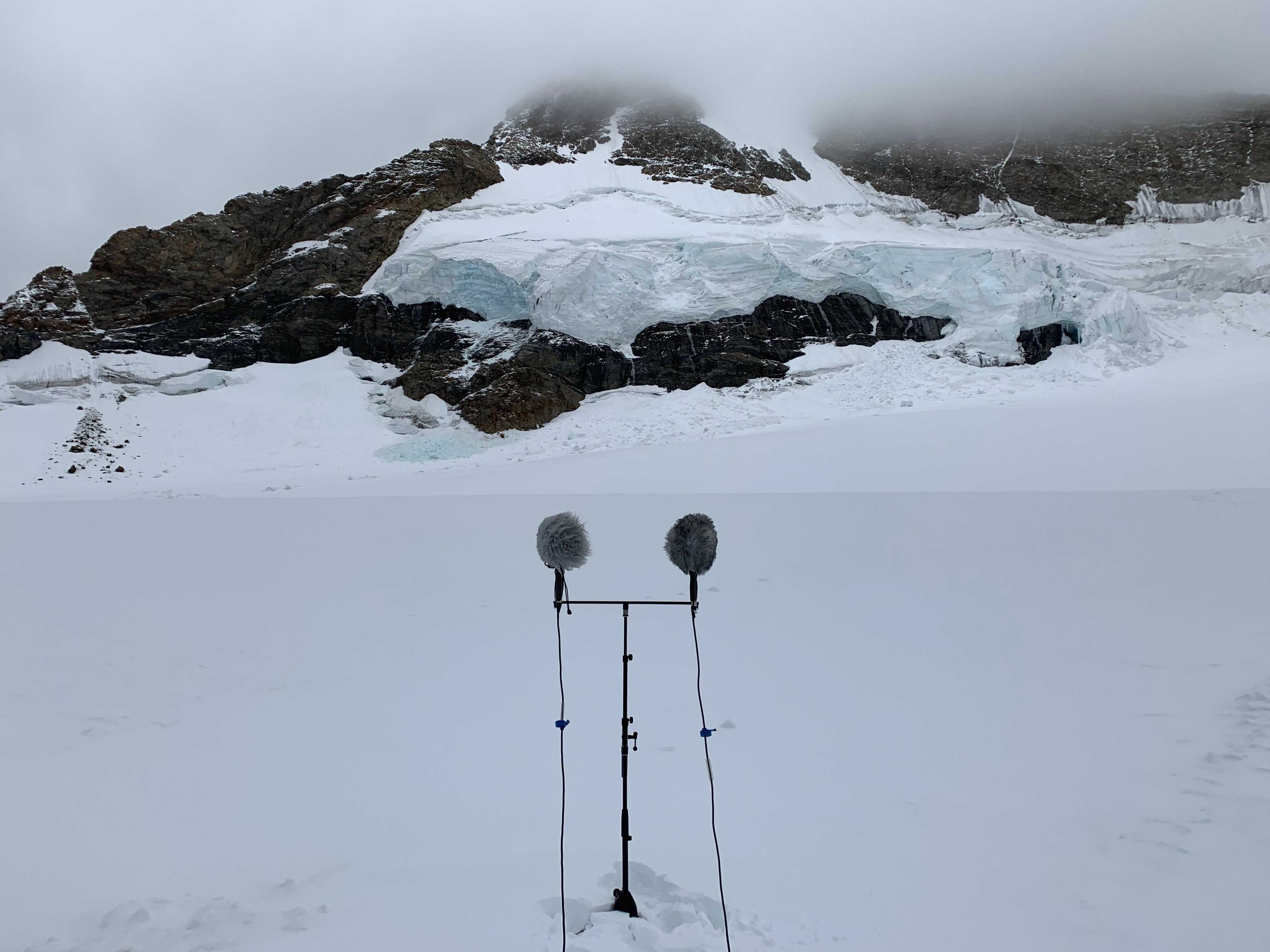
This project explores the impact of extreme climate and weather events on rarefied wilderness environments through the process of sound mapping to reveal the transformations occurring on the margins of our planet, and yet central to the health and wellbeing of everyone. Art is a powerful agent and advocate in how these transformations are perceived and the actions required to mitigate destructive behaviours and their long-term consequences.
“I’m not a scientist but I’m using art to articulate some of these observations and concerns to a much broader audience.”
— Lead researcher, Philip Samartzis in SWI swissinfo.ch, This is what the changing Alps sound like, 20 December 2019.
If you would like to get involved with this project, fill out the form below or reach out to project leaders via the contact info provided alongside each bio.
People
Philip Samartzis
School: School of Art
Philip is an Associate Professor within RMIT School of Art, and leader of the Sound Art and Audio Culture Lab.
Associate Professor Samartzis is a sound artist, scholar and curator with a specific interest in the social and environmental conditions informing remote wilderness regions and their communities. His art practice is based on deep fieldwork where he deploys complex sound recording technology to capture natural, anthropogenic and geophysical forces. The recordings are used within various exhibition, performance and publication outcomes to demonstrate the transformative effects of sound within a fine art context. He is particularly interested in concepts of perception, immersion and embodiment in order to provide audiences with sophisticated encounters of space and place. Philip is the recipient of three Australian Antarctic Division Arts Fellowships (2009, 2015, 2020), which he is using to document the effects of extreme climate and weather events in Eastern Antarctica, Macquarie Island, and the Southern Ocean over a 12-year period.
COVIDSafe
Perceptions and Practices
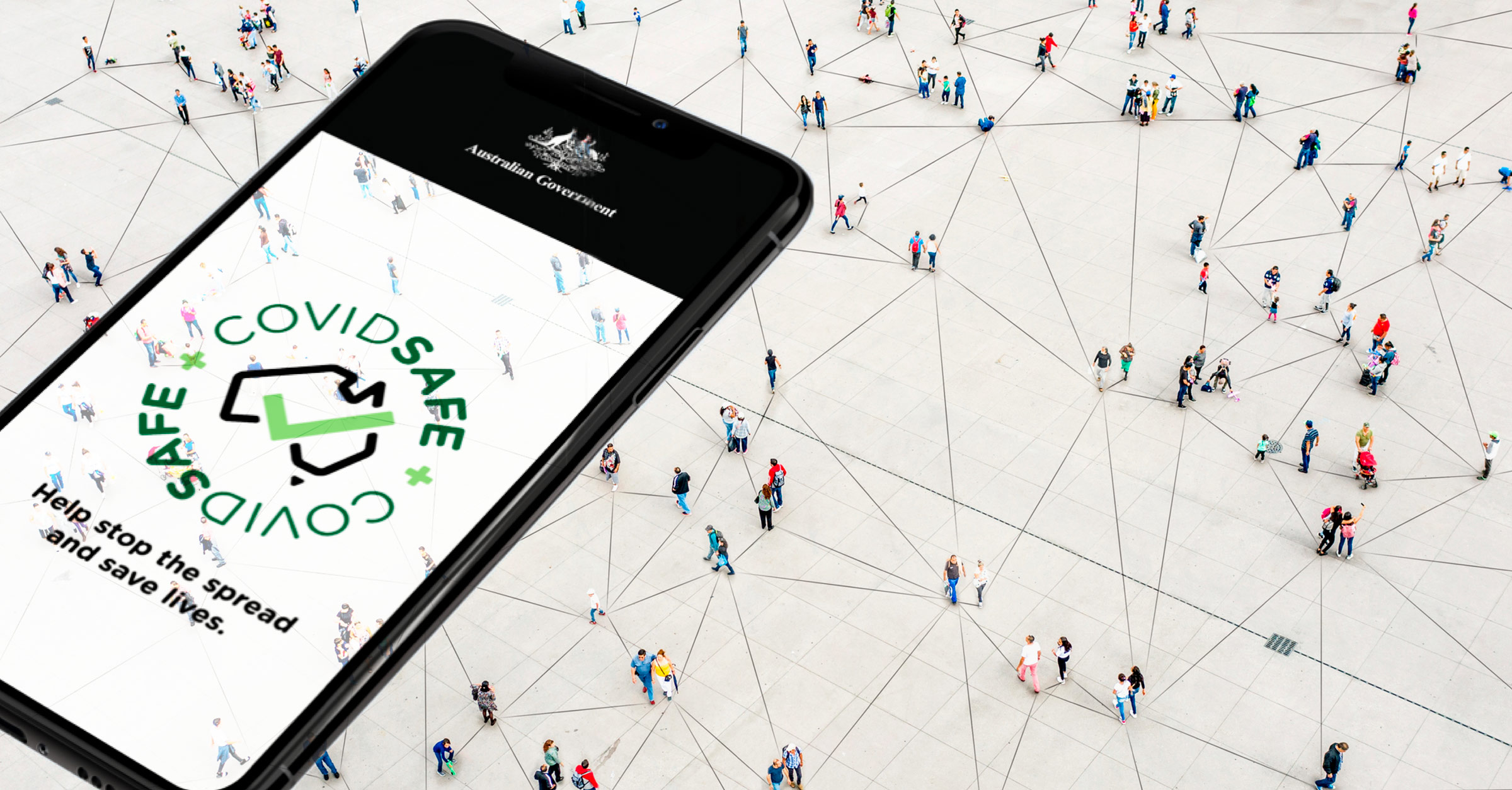
Recognising the social, civil and governance impact of the COVID19 crisis, COVIDSafe: Perceptions and Practices highlights how Australian’s are understanding and responding to these changes at a community and personal level.
We want to hear your voice.
This research project responds to the shifting environment of COVID19, exploring questions as they emerge. Questions include:
• From government contact tracing through the COVIDSafe app, to more informal practices such as details at cafes and restaurants, how do Australians respond to their information and locations being monitored and recorded?
• With the emergence of new norms in public space such as mask wearing and social distancing, how have people adjusted to differing understandings of civic responsibility toward public health?
• How is ethnicity, age and background informing responses to public health messaging?
• To what extent do individuals perceive the COVID-19 crisis as bringing about community solidarity. Or, alternately, bringing to the fore existing inequalities?
Against the backdrop of the COVID-19, this research seeks to understand how we negotiate, trust and relate to the government, the community and each other.
You can find out more details about the research through this Participant Information Sheet.
If you are in anyway struggling during the COVID19 crisis, there are a range of free services and support available that can assist you or a loved one at this time that you can access here.
If you would like to get involved with this project, fill out the form below or reach out to project leaders via the contact info provided alongside each bio.
People
Larissa Hjorth
Distinguished Professor and Director, Design and Creative Practice
School: Enabling Capability Platforms
Larissa Hjorth is a digital ethnographer, artist, Distinguished Professor and director of the Design & Creative Practice ECP platform at RMIT University. With Professor Heather Horst, she co-founded the Digital Ethnography Research Centre (DERC). Previously, Hjorth was Deputy Dean, Research & Innovation, in the School of Media & Communication (2013−2016). Hjorth served on the inaugural Australian Research Council (ARC) Engagement & Impact Pilot study assessment panel for humanities and creative practice.
Hjorth studies the socio-cultural dimensions of mobile media and play practices in the Asia-Pacific region with an emphasis on interdisciplinary, collaborative and cross-cultural approaches. She has published a dozen co-authored books, edited over a dozen Handbooks/Companions and has over 40 journal articles.
More recently, Hjorth’s work has become concerned with how we can bring creative, social and design solutions to the growing ageing populations and, in turn, how we might consider scenarios of what it means to die well. She is also studying how our “more-than-human” companions can teach us about new media in everyday life. Hjorth’s last book, Haunting Hands (Oxford Uni Press) looked at how mobile media is being deployed in situations of grief and trauma, her previous book explored how art practice can teach us new acumen into the climate change debate.
Hjorth’s books include Haunting Hands (with Cumiskey 2017), Screen Ecologies (with Pink, Sharp & Williams 2016), Digital Ethnography (Pink et al. 2016) Mobile Media in the Asia-Pacific (2009), Games & Gaming (2010), Online@AsiaPacific (with Arnold 2013), Understanding Social Media (with Hinton 2013), and Gaming in Locative, Social and Mobile Media (with Richardson 2014).
Hugh Davies
Postdoctoral Research Fellow
School: Games
Hugh Davies is an artist, curator and researcher of games and play. His practice explores histories of media devices and cultures of games in the Asia Pacific Region. Awarded a PhD in Art, Design and Architecture from Monash University in 2014, Hugh’s studies in game cultures have been supported with fellowships from Tokyo Art and Space, M+ Museum of Visual Culture and the Hong Kong Design Trust. Hugh is currently a postdoctoral research fellow at RMIT in Melbourne, Australia.
Ingrid Richardson
Professor
School: Media and Communication
Professor Ingrid Richardson has been teaching, supervising and researching in the fields of digital media, mobile media and games for over twenty years. She has a broad interest in the human-technology relation and has published widely on the phenomenology of games and mobile media, digital ethnography and innovative research methods, the relation between technology use and wellbeing, and the cultural effects of urban screens, wearable technologies, virtual and augmented reality, remix culture and web-based content creation and distribution. Ingrid has led or co-led 14 funded research projects, the most recent being an ARC DP [Games of Being Mobile] with Larissa Hjorth. She is contributing co-editor of Studying Mobile Media (Routledge, 2011) and co-author of Gaming in Social, Locative and Mobile Media (Palgrave, 2014), Ambient Play (MIT, 2020), Understanding Games and Game Cultures (Sage, 2020), Exploring Minecraft: Ethnographies of Play and Creativity (Palgrave, forthcoming), and Mobile Media and the Urban Night (Palgrave, forthcoming). Ingrid brings ten years’ experience in university-level HDR management and during this time has actively championed and supported creative methods and practice-led postgraduate research. Over the past five years she has also developed a passion for teaching critical web literacy skills to undergraduate students across all disciplines.
Ruth De Souza
VC Research Fellow
School: School of Art
Dr Ruth De Souza (FACN) is a Vice-Chancellor’s Fellow at RMIT, based in the School of Art and DCP Research Platform. She is a nurse, academic and a community-engaged researcher in gender, race, health and digital technologies. Ruth’s Fellowship will engage health professionals in finding new ways to understand, co-design and implement sustainable cultural safety initiatives in a range of health contexts in response to health inequities.
Prior to moving to Australia in 2013, Ruth worked at AUT University where she taught in the School of Nursing, led the Bachelor of Health Promotion, and was a Senior Research Fellow at the Centre for Asian and Migrant Health Research. Since her arrival in Australia, Ruth has undertaken a wide range of roles, including leading an undergraduate nursing program at Monash University’s Berwick campus; spearheading a unique community-engaged joint research appointment with North Richmond Community Health exploring how wearables and other digital technologies are perceived by people from culturally and linguistically different backgrounds and co-ordinating an interdisciplinary Data Systems and Society Research Network across the University of Melbourne. Ruth has also investigated the applicability of cultural safety in Australia, working closely with The Congress of Aboriginal and Torres Strait Islander Nurses and Midwives (CATSINaM), presenting at their National Professional Development Conferences and delivering training on cultural safety. She has also undertaken a two-year cultural safety project with cohealth (a not-for-profit community health organisation) and Our Watch who work for the primary prevention of violence against women and their children.
Mark Andrejevic
Professor
School: Media, Film, and Journalism
Mark Andrejevic (Professor, School of Media, Film, and Journalism, Monash University) contributes expertise in the social and cultural implications of data mining, and online monitoring. He writes about monitoring and data mining from a socio-cultural perspective, and is the author of three monographs and more than 60 academic articles and book chapters. He was the Chief Investigator for an ARC QEII Fellowship investigating public attitudes toward the collection of personal information online ($390,000; 2010 – 2014).
Andrejevic has experience conducting both quantitative and qualitative research and is experienced in the focus group and interview methodologies. His work on the personal information project, for example, generated a book, 11 articles and book chapters, and a report on Australian attitudes toward online privacy that was launched by the Federal Privacy Commissioner.
Creative Ecologies
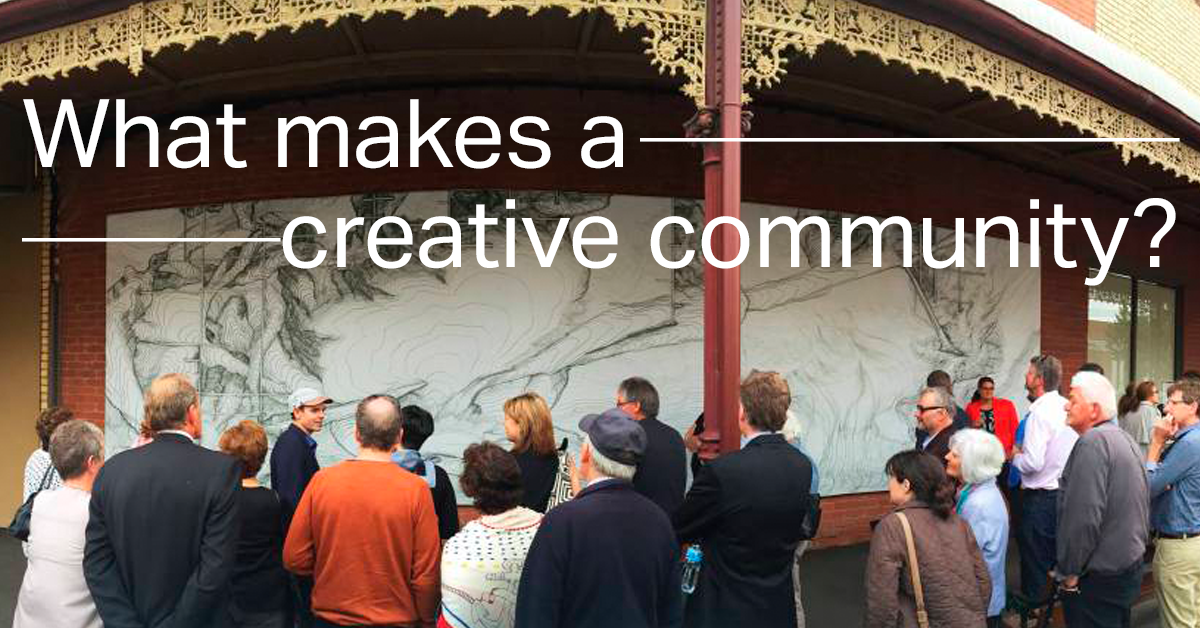
Creative Ecologies is a collaborative investigation into what makes Australia’s creative landscapes tick. The aim is to understand what it takes to build thriving creative communities and then develop tools to foster their growth.
The goal of the project is to develop a simple way of articulating the complex ways creative ecologies operate. Core to this will be highlighting connections to the wider society and demonstrating value beyond purely economic indicators. The long-term ambition of Creative Ecologies is to expand our understanding and appreciation of creative exertion – and have its central place in Australia’s national character recognised. It will do this by developing and raising awareness of a framework and resource for policymakers, practitioners and advocates. This will be a live, interactive visual map of the nation’s creative ecologies, combining data, case studies and avenues for connection across the sector.
The project began in late 2017 and the arising work and findings including a national survey, one-on-one consultations, interactive workshops were presented at the Engaging For Impact conference in February 2018. Creative Ecologies now has an expanded list of RMIT researchers on board
LEAD RESEARCHER
○Jan van Schaik, Senior Lecturer, School Architecture & Urban Design
SUPPORTING RESEARCHERS
○Marnie Badham, Vice Chancellor’s Postdoctoral Fellow, School of Art
○Bronwyn Coate, Senior Lecturer, Economics, Finance and Marketing
○Gretchen Coombs, Postdoctoral Fellow, DCP ECP
○Christine Phillips, Senior Lecturer, Architecture & Urban Design
○Professor Jason Potts, Economics, Finance and Marketing
○Noel Waite, Senior Lecturer, Communication Design
○ Professor Ellie Rennie, Digital Ethnography Research Centre
○Professor Mark Sanderson, Computer Science and Information Technology
You can find out more about CREATIVE ECOLOGIES here.
If you would like to get involved with this project, fill out the form below or reach out to project leaders via the contact info provided alongside each bio.
People
Jan van Schaik
Senior Lecturer
School: Architecture and Urban Design
Jan van Schaik is a practising architect at MvS Architects, a researcher and senior lecturer at RMIT Architecture & Urban Design, and a creative and cultural industries strategist at Future Tense. His is the leader of the ‘Culture and Society’ research stream, and a PhD superrvisor of established architects conducting post-professional reflective practice research. Jan is the founder of the WRITING & CONCEPTS lecture and publication series which reflects of the role that writing plays in visual arts practice. Jan is also one of the founders of Creative Ecologies„ a collaborative investigation into what makes Australia’s creative landscapes tick. The aim is to understand what it takes to build thriving creative communities and then develop tools to foster their growth.
Designing for social futures
How might we live and die well?
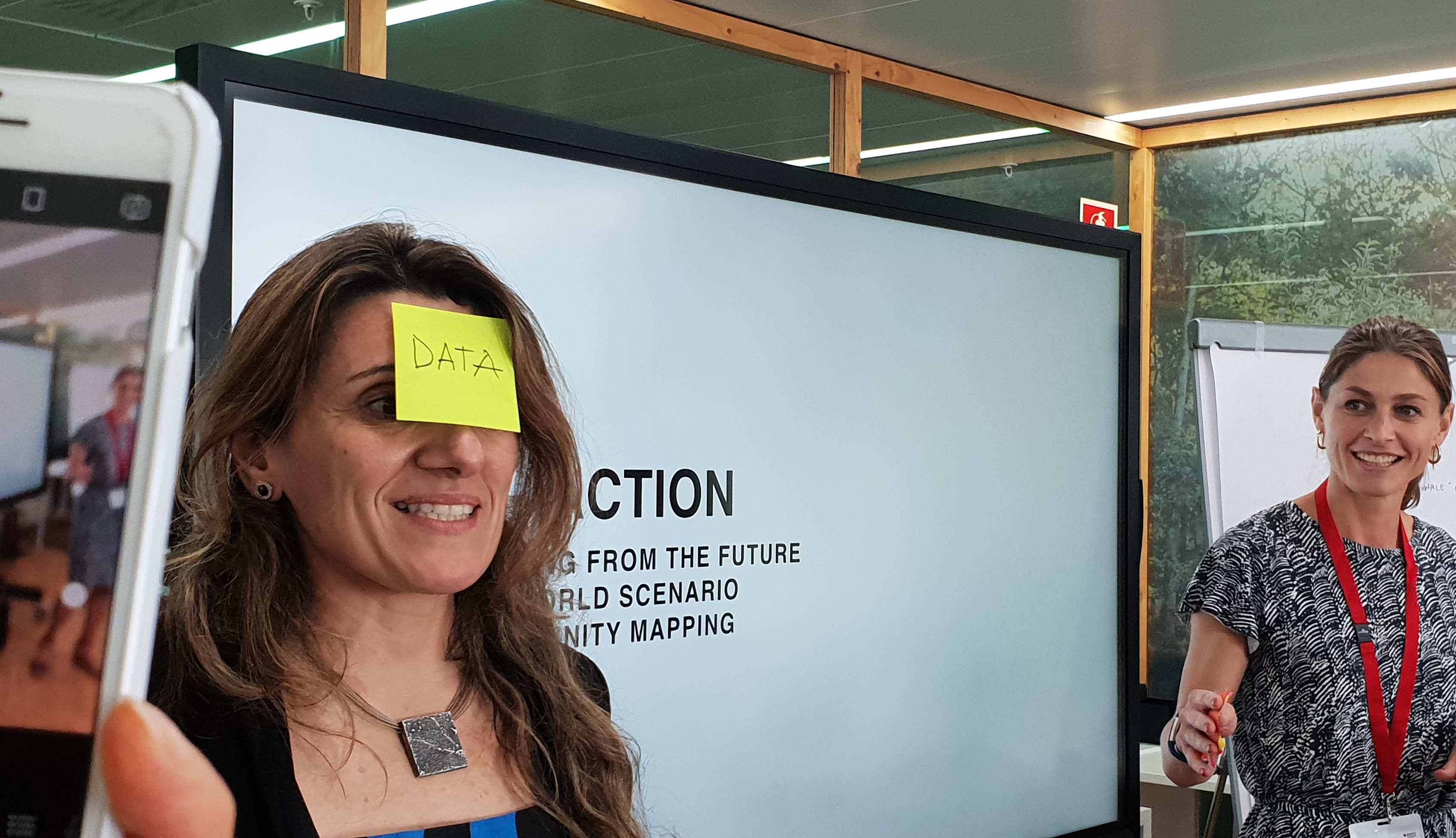
We interrogate how we might embed care in all facets of formal and informal, digital and material context to create new pathways towards inclusive and just futures in this rapidly ageing, socially precarious, and digitally networked era.
In 2018, we initiated transdisciplinary, cross-sectoral, and co-creative engagements to identify challenges and opportunities for living-and-dying-well-futures beyond traditional medicine and healthcare interventions. The initial engagements included the Designing for Social Futures of Ageing Communities and Places in Japan, and the Rethinking Health: Thick Data for Ageing Well workshop in Barcelona. Building on these, we continue to explore non-disciplinary-bounding tools and methods for research and practice focused on care and wellbeing across the world.
If you would like to get involved with this project, fill out the form below or reach out to project leaders via the contact info provided alongside each bio.
People
Jaz Hee-jeong Choi
Vice-Chancellor’s Senior Research Fellow
School: Design and Social Context
Dr Jaz Hee-jeong Choi is a Vice-Chancellor’s Senior Research Fellow at the Digital Ethnography Research Centre at RMIT. Previously, she was a Founding Member and the Director of the QUT Urban Informatics Research Lab, a transdisciplinary research group exploring and designing at the intersection of people, places, and technologies. She also founded the SIGCHI FoodCHI Network.
She is an advocate for transdisciplinary research, carefully balancing creativity and criticality. Her approach to urban sustainability recognises ‘play’ as the core of transformative interactions in cities as complex techno-social networks. She builds on this to explore how various forms of digital and playful experiences are designed and evolve in different cultural contexts. Her current research explores designing with and for care for liveable and equitable urban futures across three inter-related domains: wellbeing and ageing; impactful research methods, and; co-creative urban transformation.
She has collaborated with leading international researchers, published in books and journals across various disciplines, and given invited talks at major international conferences including the inaugural Global Social Economy Forum in 2013 and the opening keynote at the 2010 UNESCO Creative Cities Conference.
FoodCHI 2017
Technologically enabled food futures
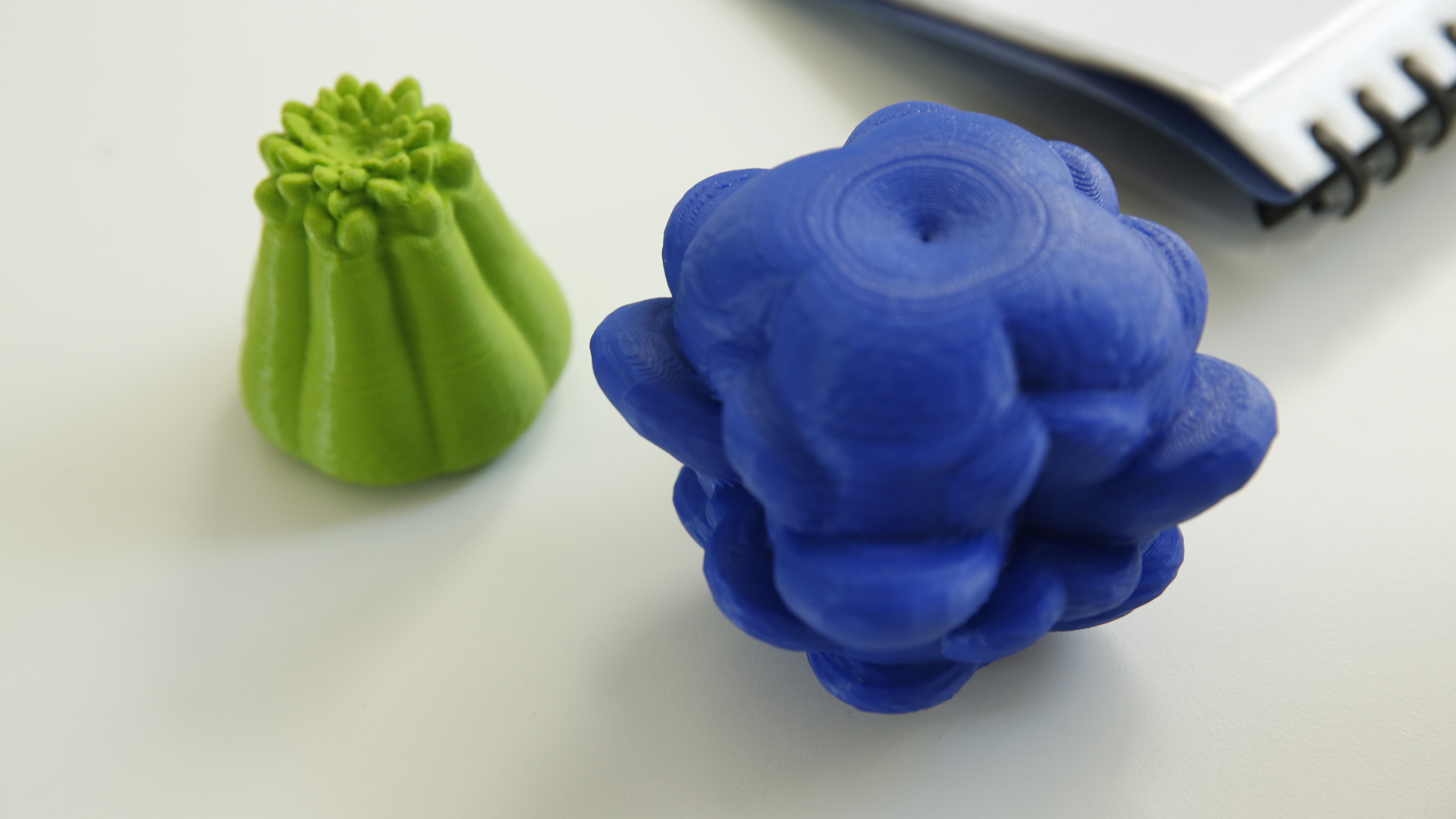
How does design and technology impact food futures? FoodCHI (Computer-Human Interaction) brings together experts and innovators across design, digital media, technology, art, sociology, and food. We examine the role of design and technology in shaping of future foodscapes and work with industry to chart robust approaches for technologically enabled food futures.
Visit the FoodCHI website.
If you would like to get involved with this project, fill out the form below or reach out to project leaders via the contact info provided alongside each bio.
People
Rohit Ashok Khot
Postdoctoral Fellow, Digital Design Cluster
School: Games
+61 3 9925 2594
Personal website
rohitashok.khot@rmit.edu.au
Dr Rohit Ashok Khot is the Deputy Director of the Exertion Games Lab; and Vice-Chancellor’s Postdoctoral Fellow at RMIT University, Australia. Rohit’s research embodies interdisciplinary strength and explores the amalgamation of design and technology in a creative way.
Dr Khot’s track record includes 39 scholarly publications in last 7 years, the majority of which appear in highly competitive HCI conferences and journals and include one best paper and one honorable mention (top 5%) award. Dr Khot’s research also appeared on 30+ press articles including a cover story on Mashable Australia, IEEE Spectrum and TV coverage on Channel 9 News and ABC News 24. He has won prestigious awards including IBM PhD fellowship (2014−2015), 2017 RMIT HDR Prize for Research Excellence (2017), RMIT Vice-chancellor’s Postdoctoral Research Fellowship (2017−2019) and SIGCHI Development Fund Grant (2017,2018). Dr Khot is also involved in organization and management of the Special Interest Group meetings, workshops and symposiums at leading international conferences specifically around food and play, besides serving on program committees for leading international HCI conferences, including DIS and TEI.
Rohit is passionate about playful Human-Food Interaction (HFI) and has an ambitious goal to alter the common perception that food cannot be healthy and pleasurable at the same time.
DCP HDR Working Group on Wellbeing and Belonging
Understanding HDR Wellbeing in and post COVID-19

Over the past few years, studies internationally have identified the power of the arts to improve wellbeing and health. At RMIT, we specialise at arts-based, codesign and ethnographic approaches to address social, ecological and health challenges. The DCP HDR Working Group on Wellbeing and Belonging are developing short term and long term projects around understanding HDR wellbeing and developing human-centred approaches to digital innovation. It seeks to address issues around the 2020 crisis (bushfires, climate change and COVID-19) and how we can empower HDRs for sustaining futures.
Within the working group, there is expertise in terms of ethnographic, user-experience methods, co-design frameworks, digital media curriculum and evaluation. This working group is researching the role of social and digital innovation for addressing impact of social isolation and associated emotional distress on wellbeing of HDR students during the COVID-19 crisis. The findings of this study will be deployed for future strategies for HDR students wellbeing.
If you would like to get involved with this project, fill out the form below or reach out to project leaders via the contact info provided alongside each bio.
People
Anne Harris
Associate Professor and Principal Research Fellow, Design and Social Context
School: Education
+61 3 9925 4459
RMIT staff profile
anne.harris@rmit.edu.au
Dr Anne M. Harris, PhD is an Associate Professor and Vice Chancellor’s Principal Research Fellow at RMIT University, and an Australian Research Council Future Fellow (2017 – 2021) studying intercultural creativity. Anne is an Honorary Research Fellow at University of Nottingham (UK) and an Adjunct Professor at Monash University (Australia).
Their research is in the areas of gender, creativity, diversity, performance and emerging digital ethnographies. Anne is a native New Yorker and has worked professionally as a playwright, teaching artist and journalist in the USA and Australia. They have authored or co-authored over 60 articles and 13 books on creativity, arts, and non-dominant culture formations, the latest being Queering Families/Schooling Publics: Keywords (with Stacy Holman Jones, Sandra Faulkner, and Eloise Brook, Routledge 2017). Anne is the creator and series editor of the Palgrave book series Creativity, Education and the Arts, and recently completed an Australian Research Council DECRA on the commodification of creativity.
Catherine Gomes
Associate Professor
School: Media and Communication
Catherine Gomes is an Associate Professor in RMIT University’s School of Media and Communication. Catherine is an ethnographer whose work contributes to the understanding of the evolving migration, mobility and digital media nexus. As a migration and mobility scholar, Catherine specialises on the social, cultural and communication spaces of transient migrants, especially international students, their wellbeing, their social groups and their digital engagements. Catherine’s work covers the themes of identity, ethnicity, race, memory and gender. She is a specialist on the Asia-Pacific with Australia and Singapore being significant fieldwork sites. Catherine has experience in mixed methods and interdisciplinary research.
Catherine’s work on transient migration and digital technology is advancing work on migration and mobility because of the transient-digital nexus she pioneers. Moreover, as founding editor of Transitions: Journal of Transient Migration Migration (Intellect), editor of the Culture, Media and Communication in Migrant Societies book series (Amsterdam University Press) and lab leader of the Migration and Digital Media Research Lab housed in the Digital Ethnography Research Centre (DERC), Catherine facilitates intellectual discussions with the aim of generating practical outcomes to address and assist policymakers and stakeholders interested in transient migration and international mobility.
Larissa Hjorth
Distinguished Professor and Director, Design and Creative Practice
School: Enabling Capability Platforms
Larissa Hjorth is a digital ethnographer, artist, Distinguished Professor and director of the Design & Creative Practice ECP platform at RMIT University. With Professor Heather Horst, she co-founded the Digital Ethnography Research Centre (DERC). Previously, Hjorth was Deputy Dean, Research & Innovation, in the School of Media & Communication (2013−2016). Hjorth served on the inaugural Australian Research Council (ARC) Engagement & Impact Pilot study assessment panel for humanities and creative practice.
Hjorth studies the socio-cultural dimensions of mobile media and play practices in the Asia-Pacific region with an emphasis on interdisciplinary, collaborative and cross-cultural approaches. She has published a dozen co-authored books, edited over a dozen Handbooks/Companions and has over 40 journal articles.
More recently, Hjorth’s work has become concerned with how we can bring creative, social and design solutions to the growing ageing populations and, in turn, how we might consider scenarios of what it means to die well. She is also studying how our “more-than-human” companions can teach us about new media in everyday life. Hjorth’s last book, Haunting Hands (Oxford Uni Press) looked at how mobile media is being deployed in situations of grief and trauma, her previous book explored how art practice can teach us new acumen into the climate change debate.
Hjorth’s books include Haunting Hands (with Cumiskey 2017), Screen Ecologies (with Pink, Sharp & Williams 2016), Digital Ethnography (Pink et al. 2016) Mobile Media in the Asia-Pacific (2009), Games & Gaming (2010), Online@AsiaPacific (with Arnold 2013), Understanding Social Media (with Hinton 2013), and Gaming in Locative, Social and Mobile Media (with Richardson 2014).
Ingrid Richardson
Professor
School: Media and Communication
Professor Ingrid Richardson has been teaching, supervising and researching in the fields of digital media, mobile media and games for over twenty years. She has a broad interest in the human-technology relation and has published widely on the phenomenology of games and mobile media, digital ethnography and innovative research methods, the relation between technology use and wellbeing, and the cultural effects of urban screens, wearable technologies, virtual and augmented reality, remix culture and web-based content creation and distribution. Ingrid has led or co-led 14 funded research projects, the most recent being an ARC DP [Games of Being Mobile] with Larissa Hjorth. She is contributing co-editor of Studying Mobile Media (Routledge, 2011) and co-author of Gaming in Social, Locative and Mobile Media (Palgrave, 2014), Ambient Play (MIT, 2020), Understanding Games and Game Cultures (Sage, 2020), Exploring Minecraft: Ethnographies of Play and Creativity (Palgrave, forthcoming), and Mobile Media and the Urban Night (Palgrave, forthcoming). Ingrid brings ten years’ experience in university-level HDR management and during this time has actively championed and supported creative methods and practice-led postgraduate research. Over the past five years she has also developed a passion for teaching critical web literacy skills to undergraduate students across all disciplines.
Natalie Hendry
VC Research Fellow
School: Media and Communication
Natalie Hendry is a Vice Chancellor’s Postdoctoral Fellow in the School of Media and Communications. Her research explores everyday social media and digital technology practices in the context of critical approaches to education, mental health, media, wellbeing, youth studies and policy. This brings together her experience prior to academia, working in community education, secondary schools and hospital settings, and consulting for health organisations and industry. Using digital ethnography and creative workshop methods, her postdoctoral research explores emerging and potential online opportunities to enhance digital outreach and media-based support for young people whose parents or adult family members are experiencing mental ill-health.
Renata Kokanovic
Convener, The HEALTH Network; Professor
School: Global, Urban & Social Studies
Professor Renata Kokanovic’s works at the intersections of health, society and medicine, with a particular focus on interdisciplinary mental health research.She combines empirical research with interdisciplinary theoretical and methodological scholarship while collaborating with industry partners and health care users to facilitate greater understanding of lived experiences of health and illness.
She co-founded Healthtalk Australia, a digital repository of health and illness narrative accounts designed to support people experiencing ill health, and inform health and social care delivery and policy.
Ruth De Souza
VC Research Fellow
School: School of Art
Dr Ruth De Souza (FACN) is a Vice-Chancellor’s Fellow at RMIT, based in the School of Art and DCP Research Platform. She is a nurse, academic and a community-engaged researcher in gender, race, health and digital technologies. Ruth’s Fellowship will engage health professionals in finding new ways to understand, co-design and implement sustainable cultural safety initiatives in a range of health contexts in response to health inequities.
Prior to moving to Australia in 2013, Ruth worked at AUT University where she taught in the School of Nursing, led the Bachelor of Health Promotion, and was a Senior Research Fellow at the Centre for Asian and Migrant Health Research. Since her arrival in Australia, Ruth has undertaken a wide range of roles, including leading an undergraduate nursing program at Monash University’s Berwick campus; spearheading a unique community-engaged joint research appointment with North Richmond Community Health exploring how wearables and other digital technologies are perceived by people from culturally and linguistically different backgrounds and co-ordinating an interdisciplinary Data Systems and Society Research Network across the University of Melbourne. Ruth has also investigated the applicability of cultural safety in Australia, working closely with The Congress of Aboriginal and Torres Strait Islander Nurses and Midwives (CATSINaM), presenting at their National Professional Development Conferences and delivering training on cultural safety. She has also undertaken a two-year cultural safety project with cohealth (a not-for-profit community health organisation) and Our Watch who work for the primary prevention of violence against women and their children.
VVet-n-VVild-VVIFI
Holistic Computing Aesthetics Network

VVet-n-VVild-VVIFI aesthetic Research and Development (AR&D) exploring the creative dimensions of internet infrastructure through which artists, technologists and theorists collaborate to address issues of alternative energy, radio transmission, and the future of Wi-Fi technology, as microcontrollers that can be suitably-powered for off-the-grid operation.
VVet-n-VVild-VVIFI explores the innovative capacities and critical implications of computational technology specifically through experiential prototyping and dialogue AR&D to propose alternative net-affinities and rewrite alternatives to avoid any contributing to roadkill of the ‘internet superhighway’. Working towards exhibition series of advanced prototypes for alt-infrastructure networks in 2021 and beyond/VVet-n-VVild-VVIFI is an exemplar of how wireless technology impacts upon traditional exhibition-based practice, radically intervening into public space through the aesthetic application of networking infrastructure in diverse social settings — intimate dens of subnode Intranets, peer to peer networking, autonomous internet beacons that decentre the passage of information and art in diverse social settings, off-grid solar/wind powered.
Find out more about VVet-n-VVild-VVIFI here.
If you would like to get involved with this project, fill out the form below or reach out to project leaders via the contact info provided alongside each bio.
People
Mixed Reality Environments
Machine Learning Applications for Design and the Built Environment
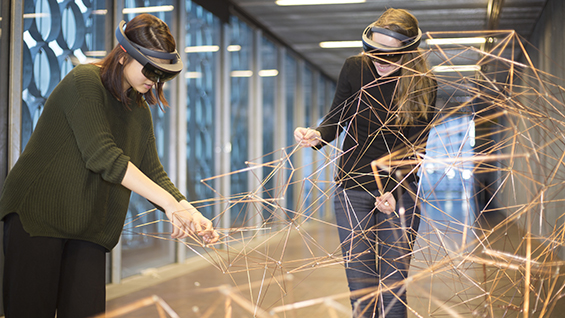
While artificial intelligence (AI) generates real value in many fields, it has seen few design applications. This activity intends to build partnerships with AI experts to implement state of the art machine learning frameworks and cloud computing infrastructure for applications within the design and construction industries. The anticipated outcome are manifold: to position RMIT as a leader in the development of creative applications of AI; to enhance RMIT’s innovation capability by combining the spatial reasoning expertise of architects with cutting edge machine learning capabilities; to develop new and far reaching design applications that may include automated 3d model synthesis, search and classification.
This project aims to develop a platform enabling creatives, consultants and contractors to collaborate within mixed reality environments and test the impact of this platform through speculative and applied design build projects.
If you would like to get involved with this project, fill out the form below or reach out to project leaders via the contact info provided alongside each bio.
People
Cameron Newnham
Associate Lecturer, Industry Fellow
School: Architecture and Urban Design
Cameron Newnham explores how technology and architecture can intersect to extend the art of the possible. Using augmented reality and a deep understanding of architectural practice Cameron is striving to identify how technology can transform architecture and construction, speeding the delivery of complex buildings, and injecting new levels of craftsmanship into the built environment.
Gwyllim Jahn
Lecturer
School: Architecture and Urban Design
Gwyllim Jahn is a Lecturer in the School of Architecture & Urban Design at RMIT in Melbourne where he is currently completing his PhD. His design practice has been internationally awarded and exhibited and is concerned with complex geometry and behavioural design systems, mixed reality environments, autonomous robotic fabrication and creative applications of machine learning.
Multisensory Embodiment
Music, Movement & Memory in Dementia
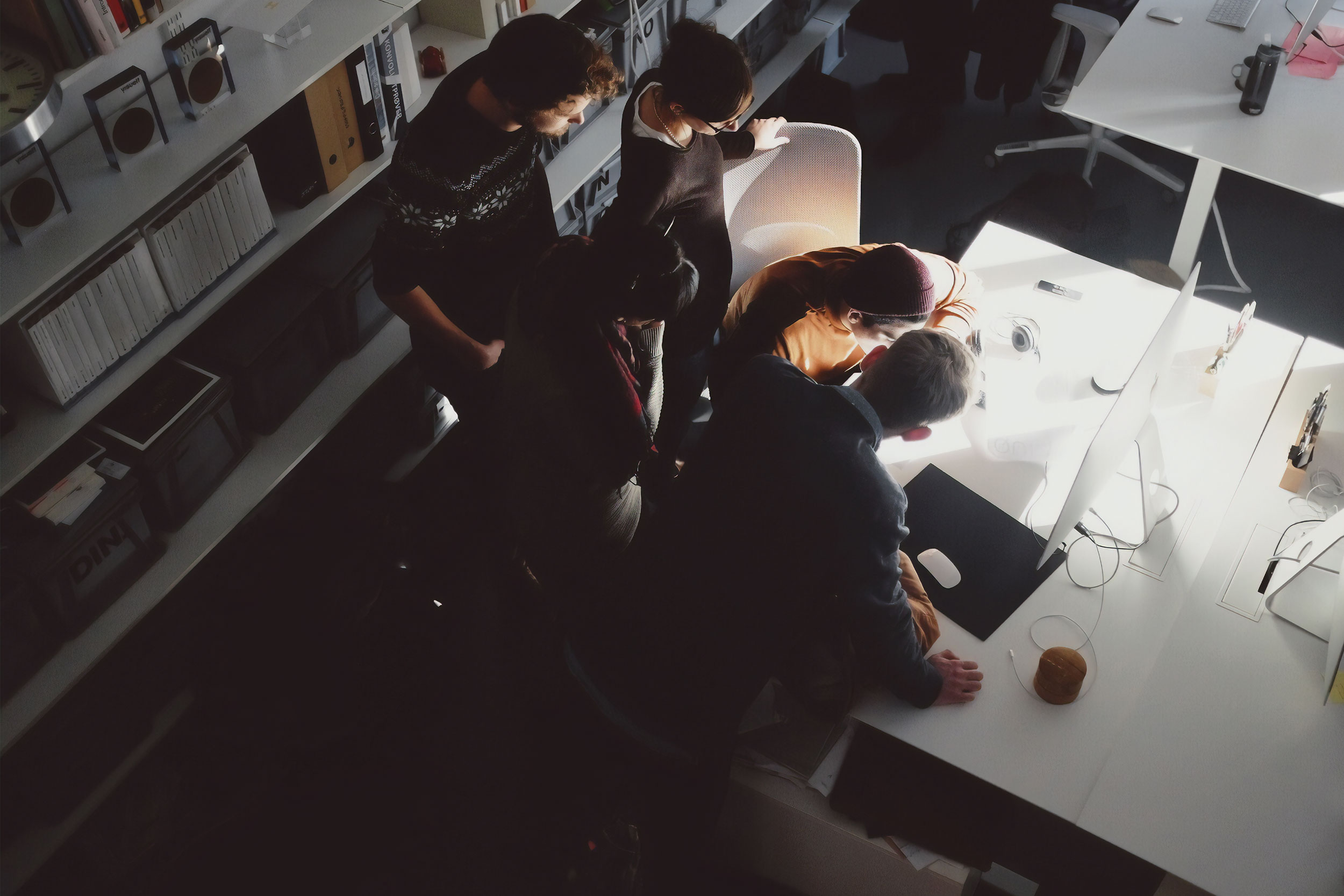
This project builds technical capacity and facilitates proof of concept testing of the impact of multisensory integration of music, movement and memory, specifically exploring embodied audio and agency-free kinesis to maximise the power of music for dementia patients. This project is creating and building a dedicated chair for this purpose and will explore both the therapeutic and commercial potential of this technology.
If you would like to get involved with this project, fill out the form below or reach out to project leaders via the contact info provided alongside each bio.
People
Jenny Robinson
Senior Lecturer, Design and Social Context
School: Media and Communication
+61 3 9925 5049
RMIT staff profile
jenny.robinson@rmit.edu.au
Dr Jenny Robinson is a lecturer in Media and Communication, teaching classes in audience research and strategic communication. Her research is in media psychology, most recently using biometrics and experimental methodology to investigate audience reception of multi-platform advertising models. She is interested in understanding how people respond to mediated communication whether that is TV, online content, public interaction or art.
Robinson brings an interdisciplinary approach to the study of audience experience, with a BA (hons) in psychology and PhD in mass communication, MA in TV and film, and Grad Dip in science communication.
Possum Skin Cloak Story
Reconnecting Communities and Culture
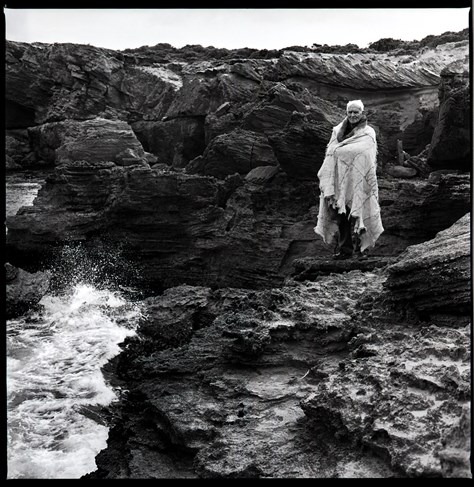
“Culture is the framework through which we connect to our Country, our Belonging. It defines and makes us who we are. Our language, stories, songs, dance, artefacts, cultural knowledge and practices demonstrate our continuing connections.” — Vicki Couzens.
Possum skin cloaks were a vital part of Aboriginal peoples lives in pre-European times. To make a cloak was a very labour intensive and time-consuming process. Telling the story of the Possum Skin Cloak strengthens cultural identity, connection to country and health, and education and justice within an indigenous community context. The impact of the revival of possum skin cloaks as a community cultural practice has been significant and profound.
If you would like to get involved with this project, fill out the form below or reach out to project leaders via the contact info provided alongside each bio.
People
Vicki Couzens
VC Indigenous Research Fellow
School: Design and Social Context
Dr Couzens is Gunditjmara from the Western Districts of Victoria. She acknowledges her ancestors and elders who guide her work.
Dr Couzens has worked in Aboriginal community affairs for almost 40 years. Her contributions in the reclamation, regeneration and revitalisation of cultural knowledge and practice extend across the ‘arts and creative cultural expression’ spectrum including language revitalisation, ceremony, community arts, public art, visual and performing arts, and writing. She is a Senior Knowledge Custodian for Possum Skin Cloak Story and Language Reclamation and Revival in her Keerray Woorroong Mother Tongue.
Vicki is employed at RMIT as a Vice Chancellors Indigenous Research Fellow developing her Project ‘watnanda koong meerreeng , tyama-ngan malayeetoo (together body and country, we know long time)’ The key objective of this Project is to produce model/s, pathways and resources for continuing the reinvigoration of Aboriginal Ways of Knowing Being and Doing with a special focus on language revitalisation.
#SiteAnalytics
Using data capture technologies to solve environmental and technological challenges
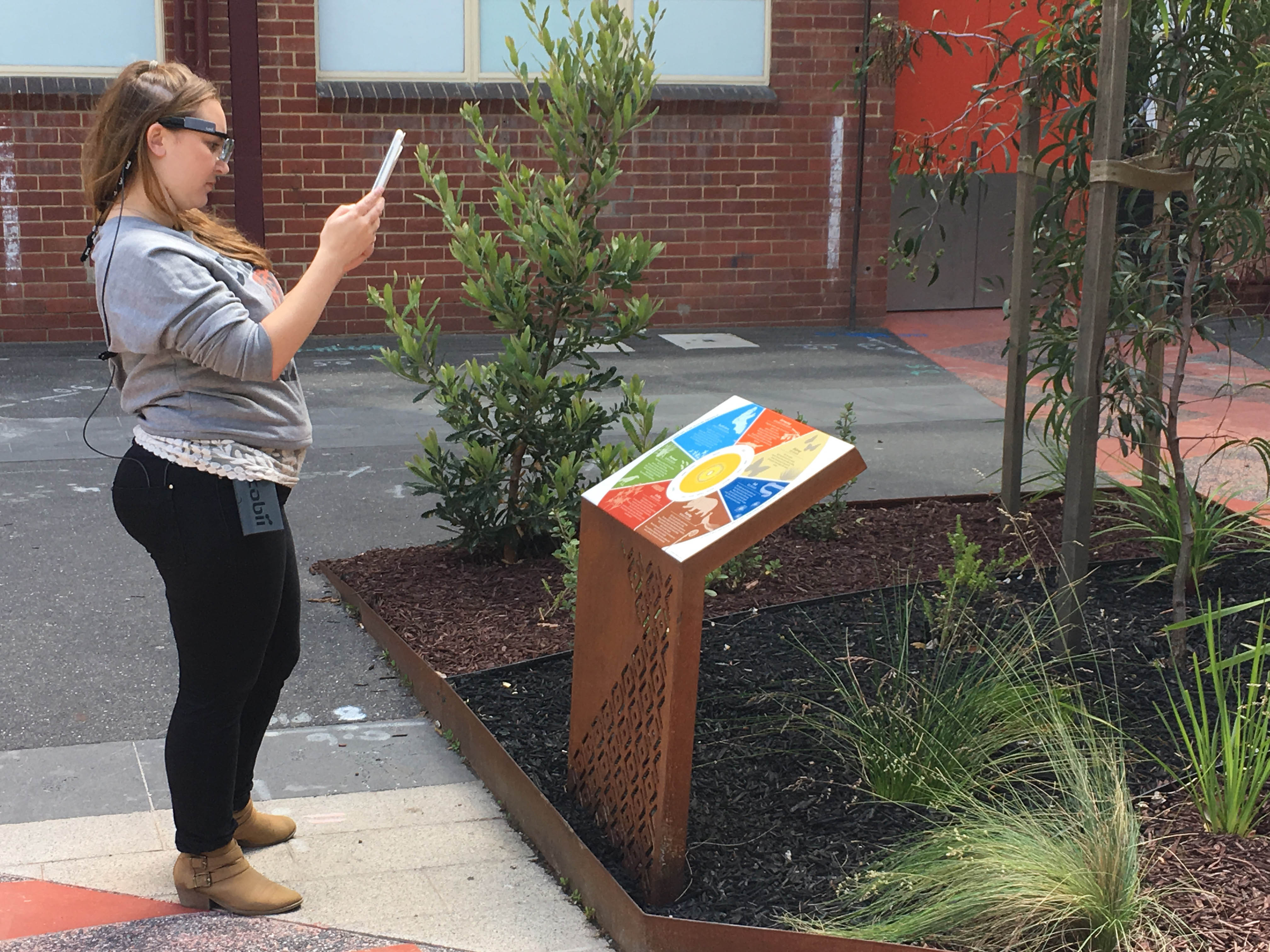
How can different mobile media innovations be usefully applied to understand the complex relationship between people, place and technologies? #SiteAnalytics is using data capture technology to solve environmental and technological challenges. More specifically, we’re using maps, mobile media and apps to generate new understandings about consumer behavior, site visitations and target audience reach and impact. We’re using this information to examine the usefulness of big data and mobile data capture technologies, and to translate this knowledge into practical and relevant solutions for industry.
If you would like to get involved with this project, fill out the form below or reach out to project leaders via the contact info provided alongside each bio.
People
Olivia Guntarik
Senior Lecturer, Design and Social Context
School: Media and Communication
+61 3 9925 1911
RMIT staff profile
olivia.guntarik@rmit.edu.au
Dr Olivia Guntarik is interested in the relationship between people, places and technologies. She has co-designed and curated place-based cultural walking trails with Indigenous community groups, using mobile apps as self-guided digital tour guides, and as a way to commemorate sites of historical significance. She has led numerous industry-based research projects that bring together writers, artists, designers and digital experts with geographers, sociologists, ethnographers and educators. She was awarded two distinguished Creative Victoria funding initiatives, co-supported through the Department of Education and Training under the Virtual Creative Professionals in Schools program, to provide schools in rural and regional locations with the highest quality creative and digital learning experiences. Research outcomes included the development of interactive mobile apps and site-specific public installations, providing new ways to document and understand user engagement, participation and impact.
The Exchange at Knowledge Market
Prototyping community engagement in Melbourne’s Docklands Precinct
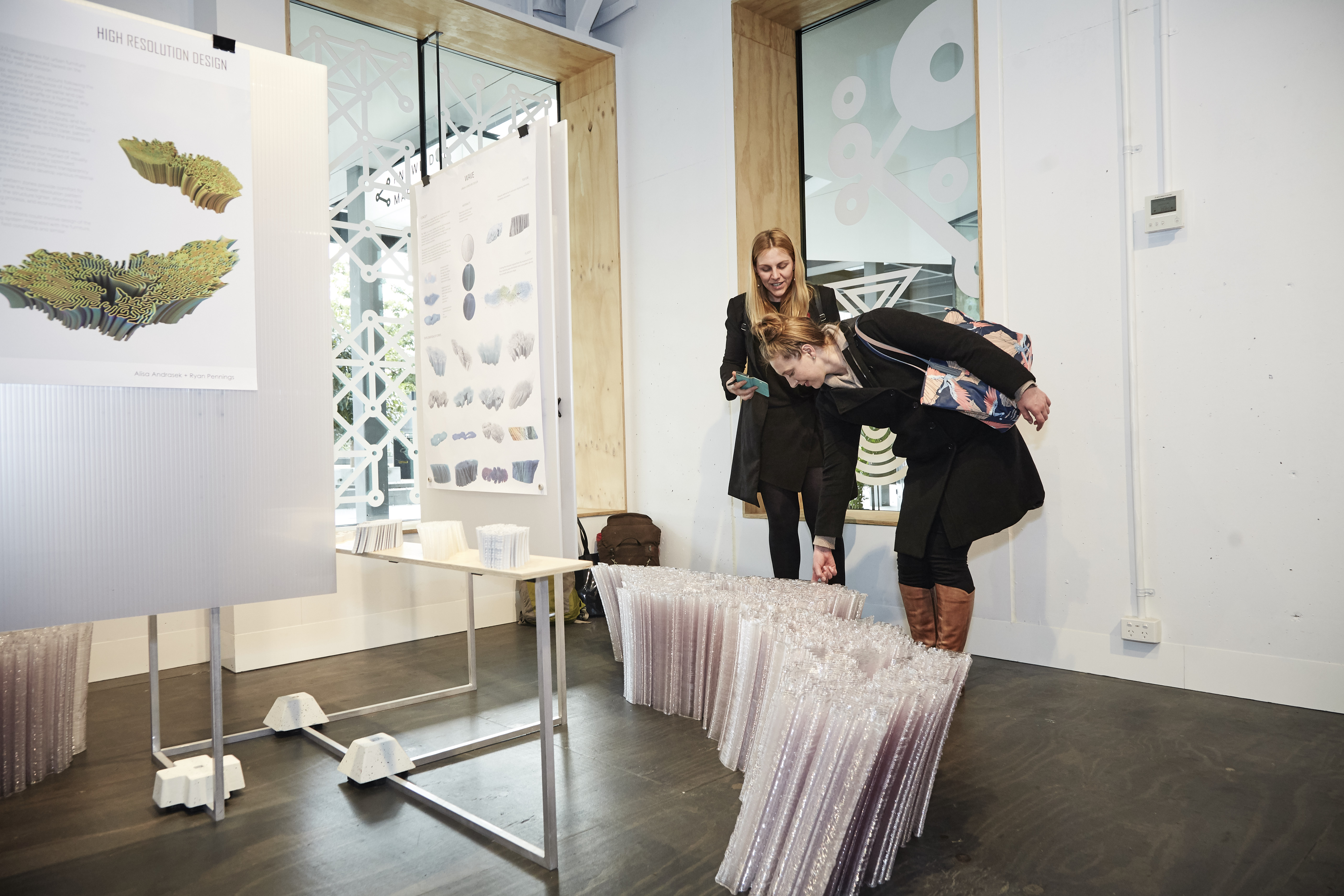
Knowledge Market is a creative hub for sharing ideas. Since its inception in 2016, it has hosted inspirational mentors and facilitators and fostered many new creative projects and partnerships. The Exchange at Knowledge Market is the next phase in the evolution of this innovation space.
The Exchange explores the concept of community and new ways of understanding the shared urban environment through a curated series of public workshops, exhibitions, forums and community events. This year-long living lab is a space created by the community for the community.
Visit the Knowledge Market website.
If you would like to get involved with this project, fill out the form below or reach out to project leaders via the contact info provided alongside each bio.
People
Ross Mcleod
Program Manager, Design Innovation and Technology
School: Architecture and Urban Design
+61 3 9925 3493
RMIT staff profile
ross.mcleod@rmit.edu.au
Ross McLeod is Program Manager of Design Innovation and Technology at RMIT University, Melbourne. Over the past twenty years Ross has worked as both a designer and as an academic, completing a wide range of one-off and production furniture designs, interior architecture projects, exhibitions designs and sculptural works both locally and internationally.
As a designer, educator and academic he is committed to the development and realisation of design projects, teaching practices and research activities that extend the boundaries of contemporary design and the sensibilities that surround it. His experience in the fields of product design, furniture design, interior design and architecture have been instrumental in the establishment of a creative practice that spans the design disciplines.
Evaluating Design for Social Innovation
A case study for culturally grounded evaluation
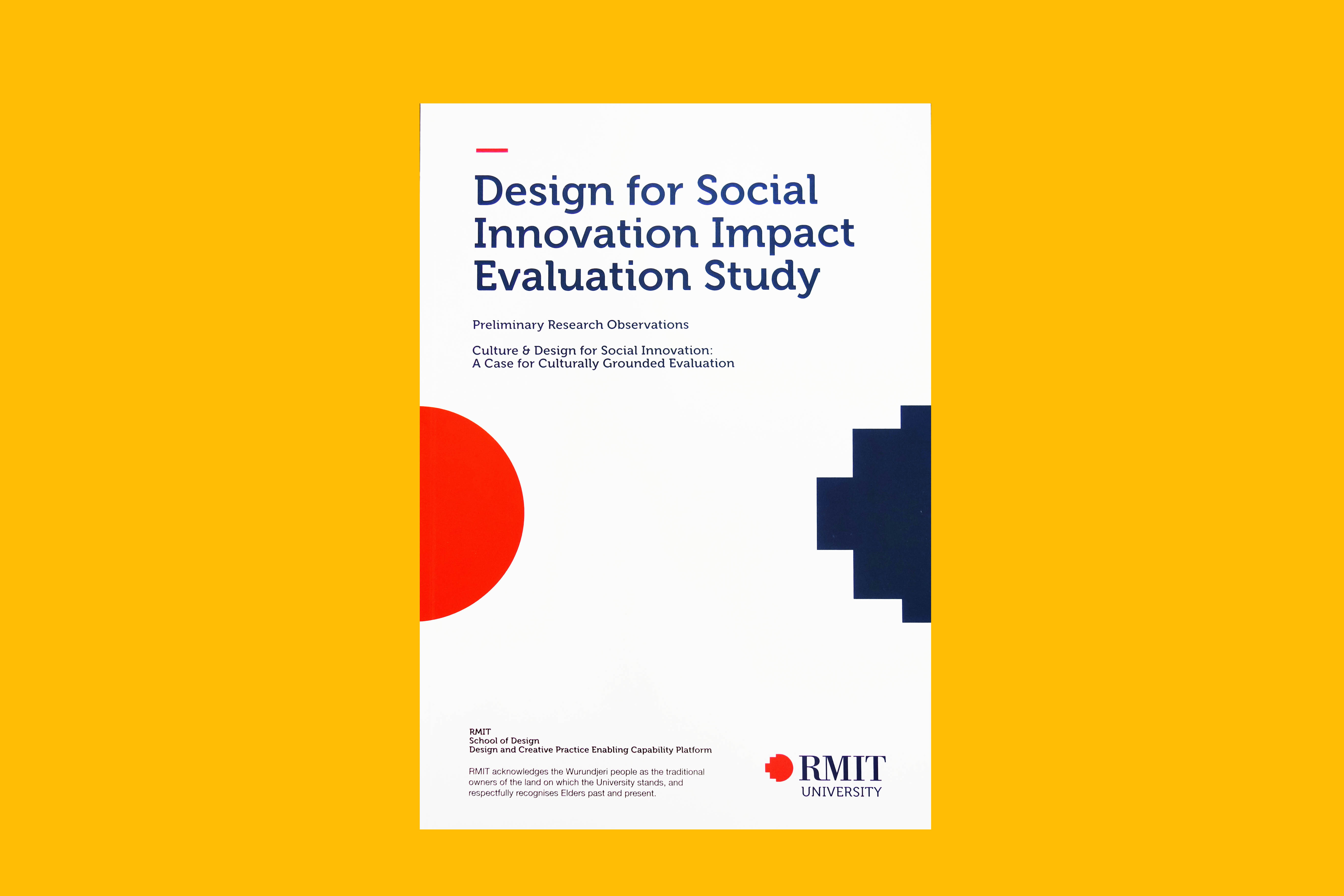
Design always matters, but designing for impact changes lives. For impact to be felt in diverse cultural contexts, we need to understand how cultures need and value design. Design for Social Innovation (DSI) is an approach for working on complex social and environmental challenges. It uses design principles to explore different ways of understanding and responding to those challenges.
Our work helps ensure that projects are of the greatest value to the communities that they are undertaken with, and that researchers are better able to communicate the impact of their projects.
View the report here.
If you would like to get involved with this project, fill out the form below or reach out to project leaders via the contact info provided alongside each bio.
People
Laurene Vaughan
Professor and Dean
School: School of Design
Professor Laurene Vaughan is Dean of the School of Design at RMIT. She is internationally recognised as a leader in interdisciplinary and applied design research and pedagogy. Professor Laurene Vaughan has a diverse research and teaching practice covering the areas of design, communication, fashion and embedded research in diverse industry sectors. Laurene currently also contributes to the University research community through being a Research Leader in the RMIT Design Research Institute.
Cultural Value and Impact Network (CVIN)
Interdisciplinary Collaboration and Inventive Methods
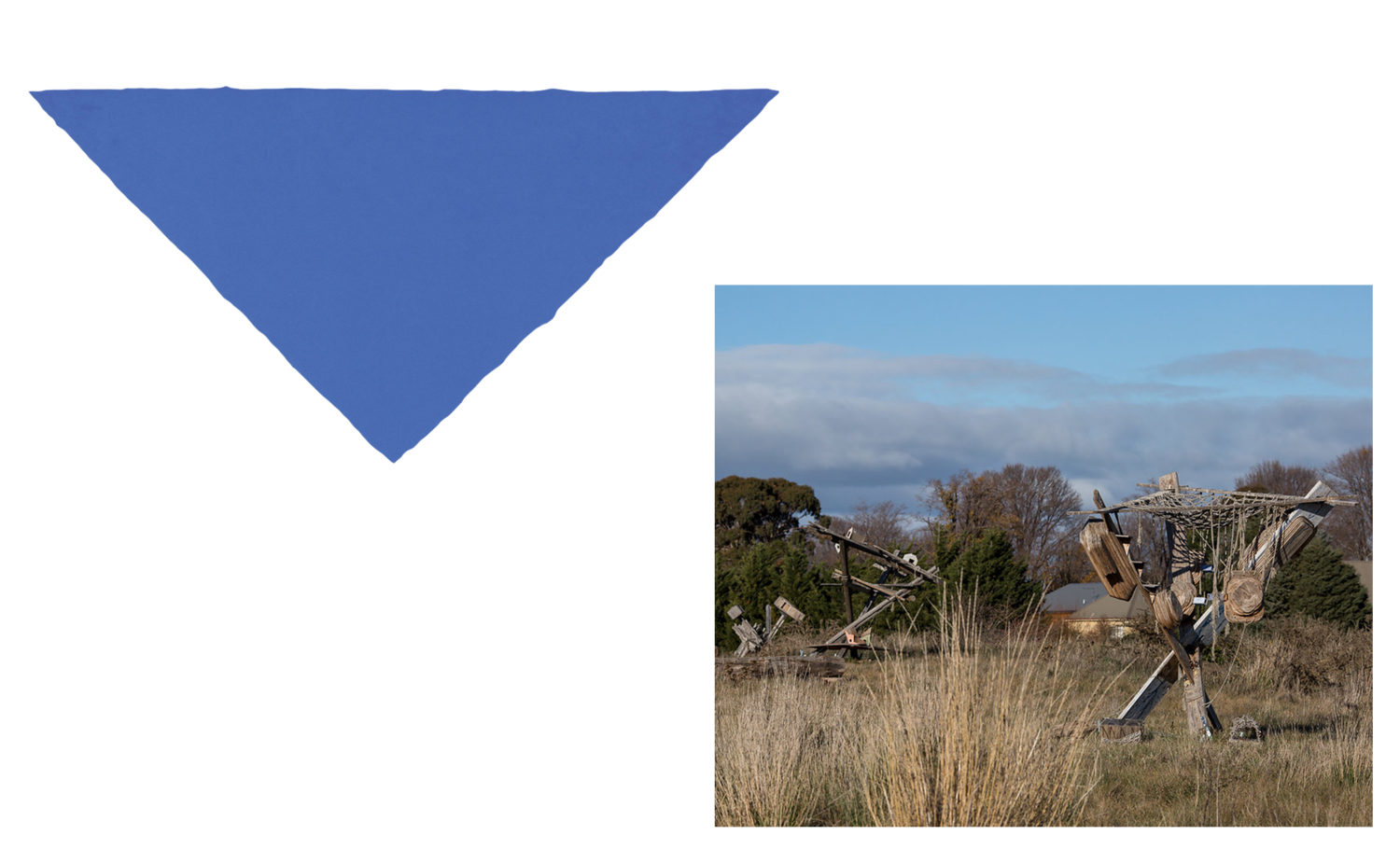
The Cultural Value and Impact Network (CVIN) is building RMIT University’s expertise in interdisciplinary collaboration and inventive methods for articulating, measuring, evaluating cultural value and social impact. With practitioners and academics from across the University, we are building strong creative teams that use new interdisciplinary methods attuned to cultural complexity and diverse communities to enable high impact research partnerships with the arts and cultural sectors, government and NGO community. We have been mapping the capabilities with our colleagues in Art, Economics, Education, Finance and Marketing, Global Urban Studies, Media and Communication, Design, Architecture, and affiliates of DCP ECP, Global Business and Innovation and Social Change. We have collated existing research methods and industry projects through a survey and interviews to identify existing approaches, drivers, current gaps, and future interdisciplinary methodological possibilities for student training and partnerships.
Find out more about the Cultural Value and Impact Network [CVIN.
If you would like to get involved with this project, fill out the form below or reach out to project leaders via the contact info provided alongside each bio.
People
Bronwyn Coate
Senior Lecturer
School: Economics, Finance and Marketing
Dr Bronwyn Coate is a Senior Lecturer in the School of Economics, Finance and Marketing who specialises in cultural economics. Bronwyn’s research involves economic analysis of the arts and creative industries using a range of economic and experimental techniques including approaches from behavioural economics and behavioural science. Areas her research has focused upon include art markets, artists/cultural labour, and cultural/creative industries. Much of Bronwyn’s research is undertaken within mult-idisciplinary teams and focused upon addressing issues with policy relevance for the arts and cultural sector. Bronwyn is a member of a number of a number of research groups including the Cultural Value Impact Network (CVIN), Kinomatics Research Group, Behavioural Business Lab (BBL) and Placemaking Economics Research Group. She is also the current Secretary/Treasurer of the Association for Cultural Economics International (ACEI).
Gretchen Coombs
Post Doctoral Research Fellow
School: Design and Creative Practice
Gretchen Coombs is a Post Doctoral Research Fellow in the Design & Creative Practice Enabling Capability Platform at RMIT. She researches socially engaged art practices in the US, the UK and Australia, with a particular focus on how they are practiced in urban contexts. She’s a core member of the Cultural Value and Impact Network (CVIN) and contributes to Creative Care in the School of Art. Gretchen has a PhD in social and cultural anthropology and a MA in visual criticism: her writing uses a combination of ethnographic methods and visual analysis. She is a co-author of Creative Practice Ethnographies (Rowan & Littlefield 2019) and her monograph, The Lure of the Social: Encounters with Contemporary Artists (Intellect 2021 ) is an experimental ethnography about contemporary artists working at the intersection of art, aesthetics, and politics.
Kit Wise
Professor
School: School of Art
99252219
RMIT staff profile
kit.wise@rmit.edu.au
After graduating from Oxford University and the Royal College of Art with an MFA in Sculpture, Kit Wise received the Wingate Rome Scholarship in Fine Art in 1999, to study at the British School at Rome. He moved to Australia in 2002 and completed his PhD at Monash University in 2012.
Wise has held senior educational leadership and leadership and governance roles since 2008. He is a Board Member for Deans and Directors of Creative Arts (DDCA) and Deputy Chair of the Executive Council of the Australian Council of University Art and Design Schools (ACUADS).
He is Professor of Fine Art and Dean of the School of Art at the RMIT University; and an Adjunct Professor at Monash University and the University of Tasmania. He is represented by Sarah Scout Presents, Melbourne and continues to practice as an artist, art writer and curator.
News and updates
Being Wiradjuri Together – Winner 2018 Good Design Award, Social Impact

An interactive Wiradjuri-RMIT project is among the winners in the social impact category at the 2018 Good Design Awards. Read more
RMIT Europe Symposium: Rethinking Healthcare for the Future

Exploring how design and technology can transform healthcare for an ageing population. Read more
Doing Digital Methods – Workshop Summary
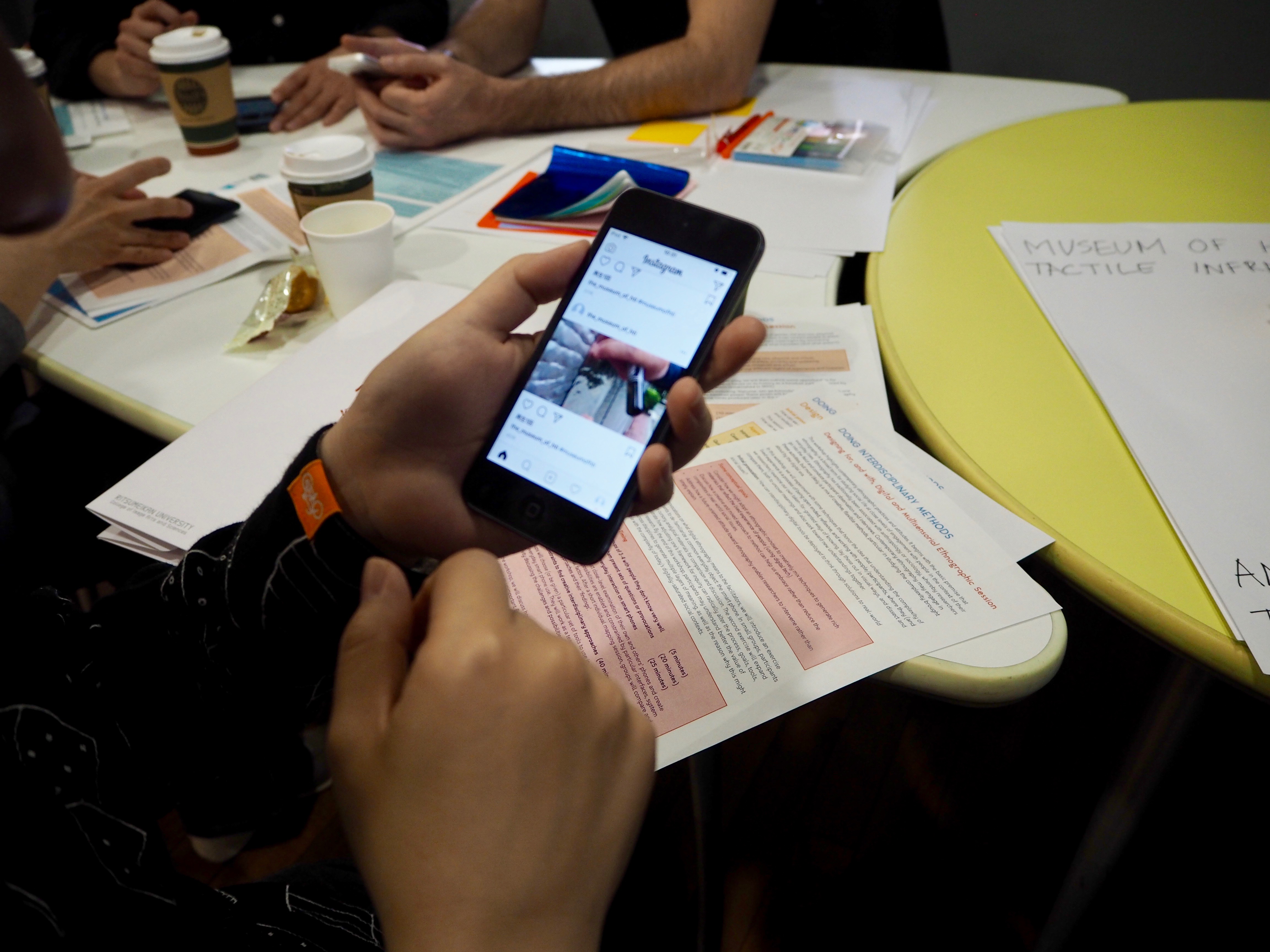
In June 2018, the DCP ECP and Ritsumeikan University (RU) jointly hosted a workshop at Ritsumeikan University (Japan) on interdisciplinary and critical creative methods, within mixed reality contexts, when considering social innovative futures. Read more
EFI Conference 2018
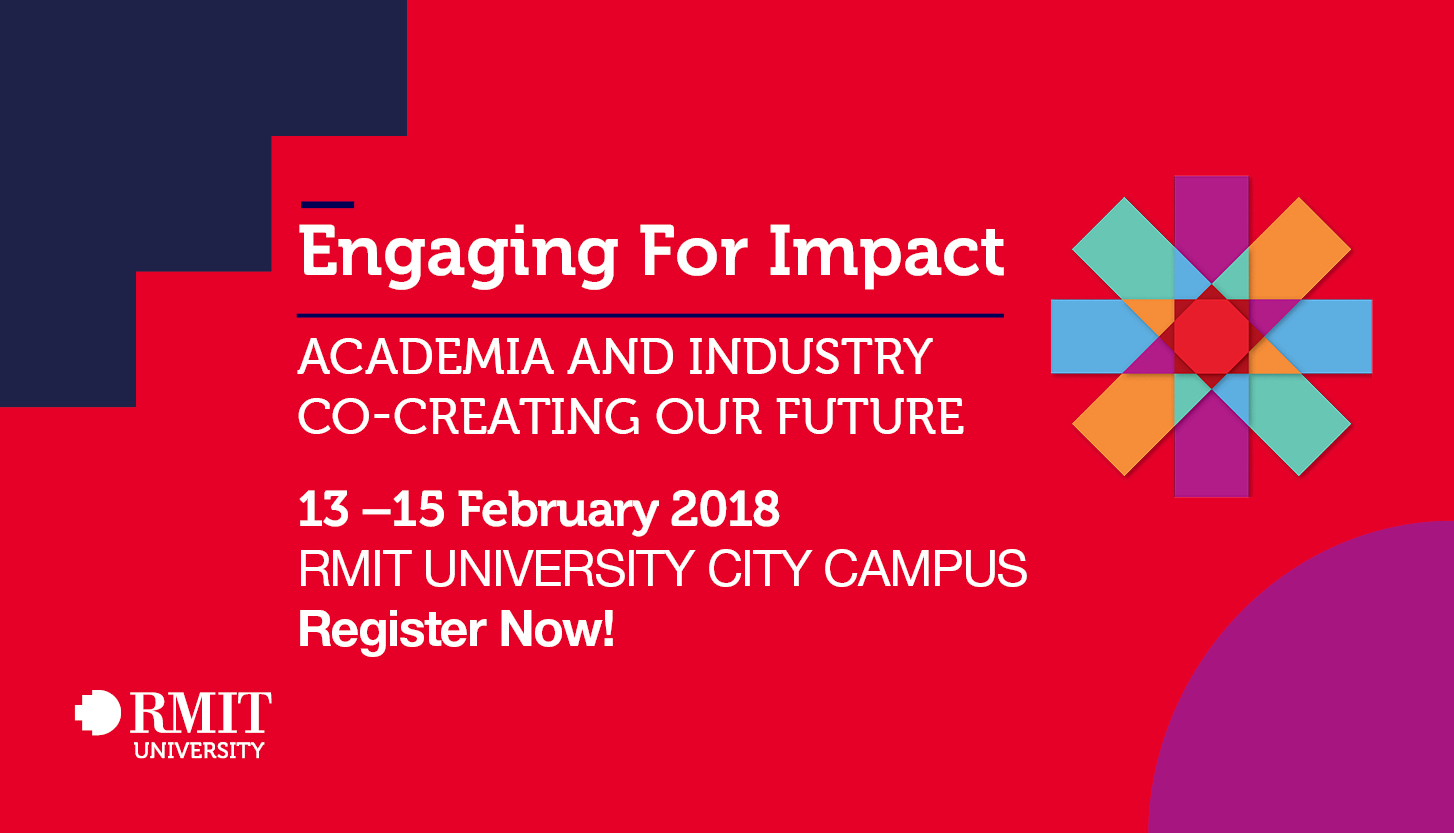
At Engaging for Impact 2018 Conference, RMIT’s eight Enabling Capability Platforms will share their knowledge and demonstrate how their expertise can address the world’s most critical issues. The Social Change ECP and Design and Creative Practice ECP, along with Biomed ECP, have curated The Future of Care stream. Read more
Facett – Winner 2018 Good Design Award of the Year
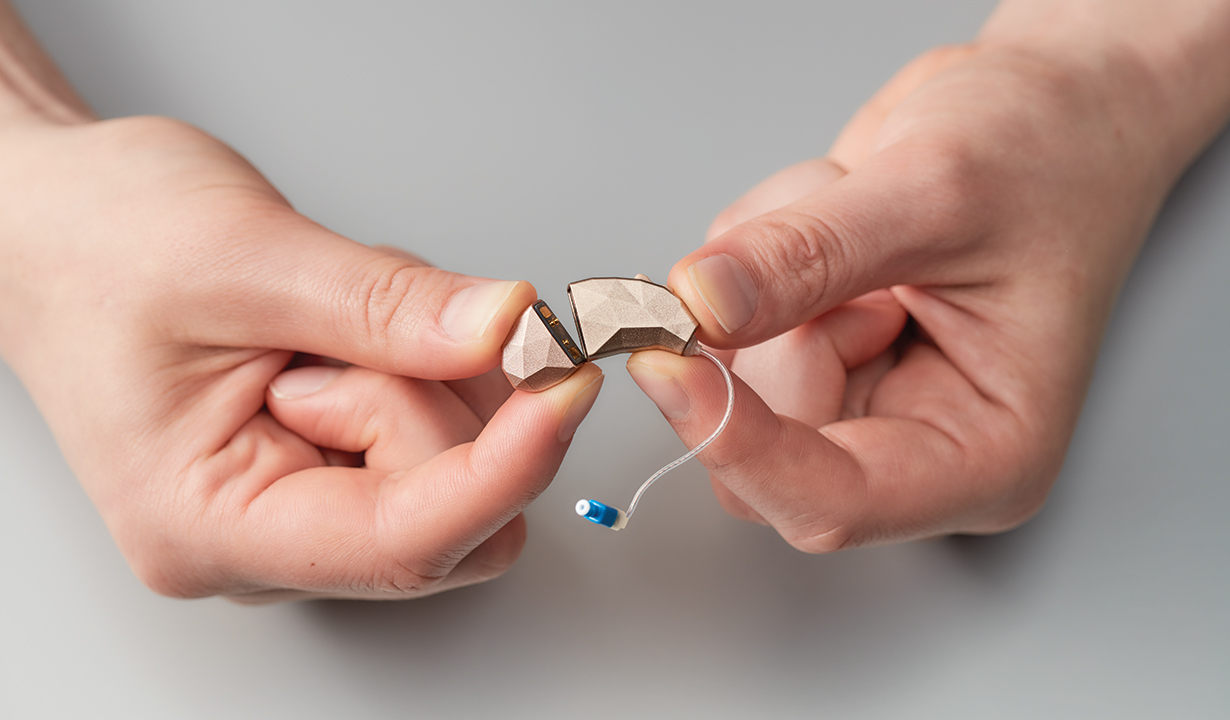
The overall winner of the 2018 Good Design Awards, was Blamey Saunders’ Facett hearing aid, which also took out the CSIRO Design Innovation Award and Best in Class for Product Design and Social Impact. The Blamey Saunders hears Facett hearing aid was designed by Professor Peter Blamey, Yaniv Kaufman and RMIT University’s very own Leah Heiss. Read more
RMIT Europe Workshop: Creative Methods for Social Mapping
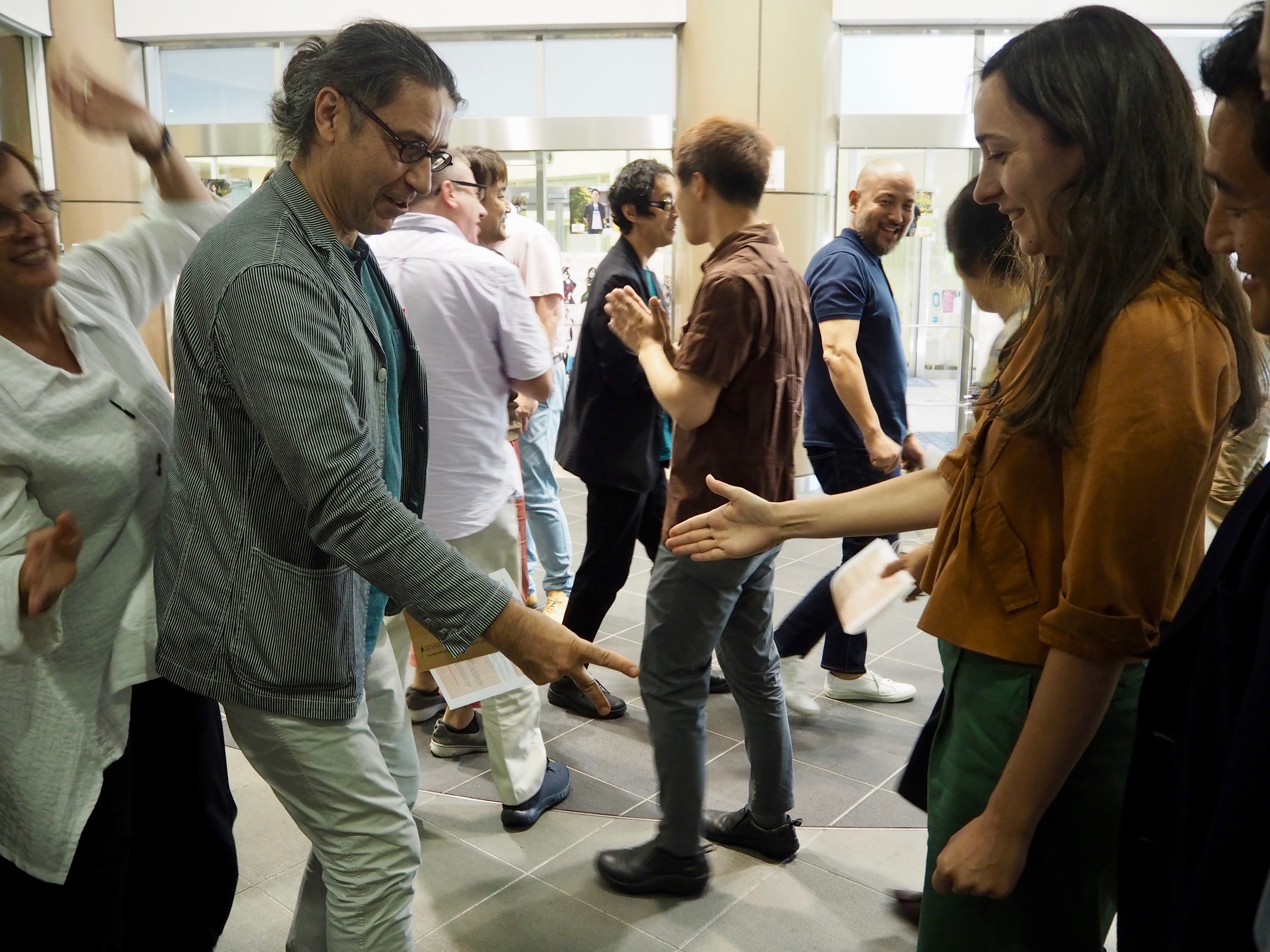
This workshop discusses best practices, provocative elements of, and ideas for the future of creative methods for impactful research. Read more
People

Ananta is a Lecturer in Economics specialising in Behavioural, Development and Experimental economics. His academic research focuses on the impact of social institutions (like gender norms) on individual decision making and behavioural effects of rewards. He has successfully published his work in top-tier economics journals such as the Journal of Economic Behaviour and Organization and Economics Letters. Ananta also has conducted multiple impact evaluation projects and has provided consultancy services to Plan International, World Bank, International Organization for Migration, Swiss Development Corporation and the Consumer Policy Research Centre. Ananta received his PhD from Monash University in 2014.
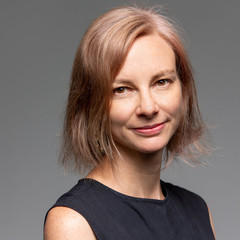
Dr Bronwyn Coate is a Senior Lecturer in the School of Economics, Finance and Marketing who specialises in cultural economics. Bronwyn’s research involves economic analysis of the arts and creative industries using a range of economic and experimental techniques including approaches from behavioural economics and behavioural science. Areas her research has focused upon include art markets, artists/cultural labour, and cultural/creative industries. Much of Bronwyn’s research is undertaken within mult-idisciplinary teams and focused upon addressing issues with policy relevance for the arts and cultural sector. Bronwyn is a member of a number of a number of research groups including the Cultural Value Impact Network (CVIN), Kinomatics Research Group, Behavioural Business Lab (BBL) and Placemaking Economics Research Group. She is also the current Secretary/Treasurer of the Association for Cultural Economics International (ACEI).
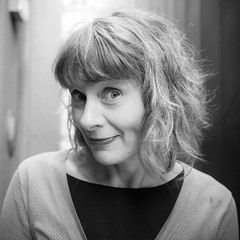
Larissa Hjorth is a digital ethnographer, artist, Distinguished Professor and director of the Design & Creative Practice ECP platform at RMIT University. With Professor Heather Horst, she co-founded the Digital Ethnography Research Centre (DERC). Previously, Hjorth was Deputy Dean, Research & Innovation, in the School of Media & Communication (2013−2016). Hjorth served on the inaugural Australian Research Council (ARC) Engagement & Impact Pilot study assessment panel for humanities and creative practice.
Hjorth studies the socio-cultural dimensions of mobile media and play practices in the Asia-Pacific region with an emphasis on interdisciplinary, collaborative and cross-cultural approaches. She has published a dozen co-authored books, edited over a dozen Handbooks/Companions and has over 40 journal articles.
More recently, Hjorth’s work has become concerned with how we can bring creative, social and design solutions to the growing ageing populations and, in turn, how we might consider scenarios of what it means to die well. She is also studying how our “more-than-human” companions can teach us about new media in everyday life. Hjorth’s last book, Haunting Hands (Oxford Uni Press) looked at how mobile media is being deployed in situations of grief and trauma, her previous book explored how art practice can teach us new acumen into the climate change debate.
Hjorth’s books include Haunting Hands (with Cumiskey 2017), Screen Ecologies (with Pink, Sharp & Williams 2016), Digital Ethnography (Pink et al. 2016) Mobile Media in the Asia-Pacific (2009), Games & Gaming (2010), Online@AsiaPacific (with Arnold 2013), Understanding Social Media (with Hinton 2013), and Gaming in Locative, Social and Mobile Media (with Richardson 2014).
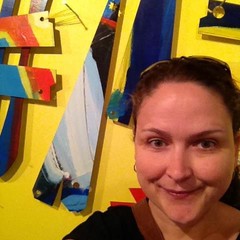
With a twenty-five-year history of art and social justice practice Australia and Canada, Marnie’s research sits at the intersection of socially engaged art, community-based research methodologies and the politics of cultural measurement. Marnie is currently focused on a series of creative cartographies registering emotion in public space; expanded curation projects on the aesthetics and politics of food; and a book project The Social Life of Artist Residencies: connecting with people and place not your own. Marnie is Senior Research Fellow at the School of Art following the prestigious award of Vice Chancellor’s Postdoctoral Research Fellow at RMIT University. Marnie co-leads the Cultural Value Impact Network and is acting Leader for CAST Contemporary Art and Social Transformation research group.
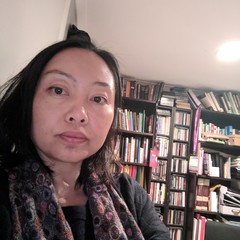
Dr Olivia Guntarik is interested in the relationship between people, places and technologies. She has co-designed and curated place-based cultural walking trails with Indigenous community groups, using mobile apps as self-guided digital tour guides, and as a way to commemorate sites of historical significance. She has led numerous industry-based research projects that bring together writers, artists, designers and digital experts with geographers, sociologists, ethnographers and educators. She was awarded two distinguished Creative Victoria funding initiatives, co-supported through the Department of Education and Training under the Virtual Creative Professionals in Schools program, to provide schools in rural and regional locations with the highest quality creative and digital learning experiences. Research outcomes included the development of interactive mobile apps and site-specific public installations, providing new ways to document and understand user engagement, participation and impact.
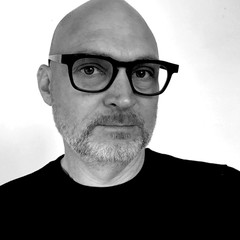
Dr Seth Keen is a new media educator, researcher, and designer in the School of Media and Communication. Seth brings together media and co-design practices to engage with contemporary wicked problems. His track record of expertise is in the design of audiovisual media and image-based platforms. He has worked on collaborative projects with academic and industry research partners in the areas of development aid, cultural geography, social services and disaster resilience. Seth is a winner of a prestigious Good Design Australia Award in Social Impact, 2018.
Seth Keen is interested in talking to ARC Linkage collaborators in the areas of Service Design, Computer Science (mobile applications, cloud-based systems) and Bushfire Fuel Management.
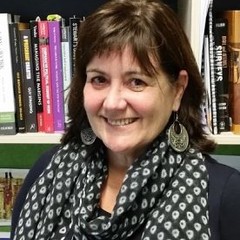
Dr Fiona Macdonald is a Vice-Chancellor’s Senior Research Fellow in the School of Management. Fiona’s research focuses on three interconnected themes: the changing nature of work and employment relationships; regulating for decent work and gender equality; and the political economy of work. The empirical focus of Fiona’s current research on the social care workforce also brings in her long-standing interest in social policy and welfare systems.
In 2016 Fiona was awarded an Australian Research Council Discovery Early Career Researcher Award to examine the workforce challenges of Australia’s new National Disability Insurance Scheme (NDIS). Her research has strong policy relevance and she works closely with industry as well as with national and international networks of employment and care scholars. In 2017 she received the RMIT Vice-Chancellor’s Award for Research impact – Early Career Researcher. Fiona is a member of the Editorial Advisory Board of the recently established International Journal of Care and Caring.
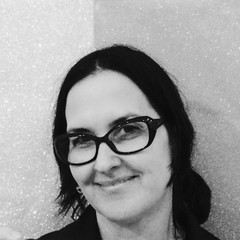
Gretchen Coombs is a Post Doctoral Research Fellow in the Design & Creative Practice Enabling Capability Platform at RMIT. She researches socially engaged art practices in the US, the UK and Australia, with a particular focus on how they are practiced in urban contexts. She’s a core member of the Cultural Value and Impact Network (CVIN) and contributes to Creative Care in the School of Art. Gretchen has a PhD in social and cultural anthropology and a MA in visual criticism: her writing uses a combination of ethnographic methods and visual analysis. She is a co-author of Creative Practice Ethnographies (Rowan & Littlefield 2019) and her monograph, The Lure of the Social: Encounters with Contemporary Artists (Intellect 2021 ) is an experimental ethnography about contemporary artists working at the intersection of art, aesthetics, and politics.

Currently undertaking a PhD in Design at RMIT School of Design, Jacob explores socially engaging technology in later life and its shaping by designers. Approaching design research through investigating the materiality of artifacts, and our interactions with them, Jacob seeks to uncover social-technical practices through dialogical and anthropological means.
Alongside his doctorate research, Jacob is involved in ‘Co-designing Participatory Strategies With Older Adults ‘ (Shaping Connections) and ‘Enabling an Ageing Workforce’ (Safeness by Design) research projects. As a sessional lecturer in Design Studies, Jacob hopes to foster research-led and collaborative design practices in socially complex contexts. With a diverse background in the design industry, he is interested in locating design research practice in wider discourses and interrogating its impact.

Dr Jaz Hee-jeong Choi is a Vice-Chancellor’s Senior Research Fellow at the Digital Ethnography Research Centre at RMIT. Previously, she was a Founding Member and the Director of the QUT Urban Informatics Research Lab, a transdisciplinary research group exploring and designing at the intersection of people, places, and technologies. She also founded the SIGCHI FoodCHI Network.
She is an advocate for transdisciplinary research, carefully balancing creativity and criticality. Her approach to urban sustainability recognises ‘play’ as the core of transformative interactions in cities as complex techno-social networks. She builds on this to explore how various forms of digital and playful experiences are designed and evolve in different cultural contexts. Her current research explores designing with and for care for liveable and equitable urban futures across three inter-related domains: wellbeing and ageing; impactful research methods, and; co-creative urban transformation.
She has collaborated with leading international researchers, published in books and journals across various disciplines, and given invited talks at major international conferences including the inaugural Global Social Economy Forum in 2013 and the opening keynote at the 2010 UNESCO Creative Cities Conference.
